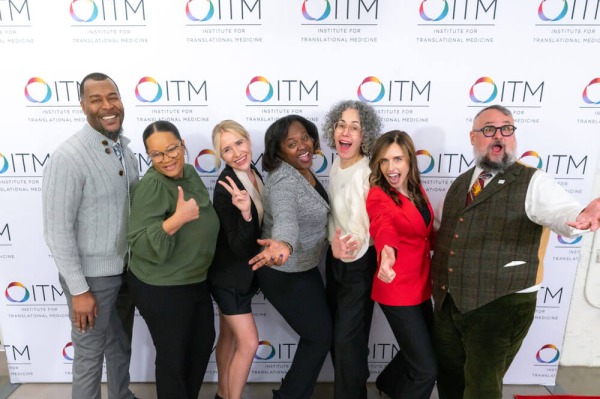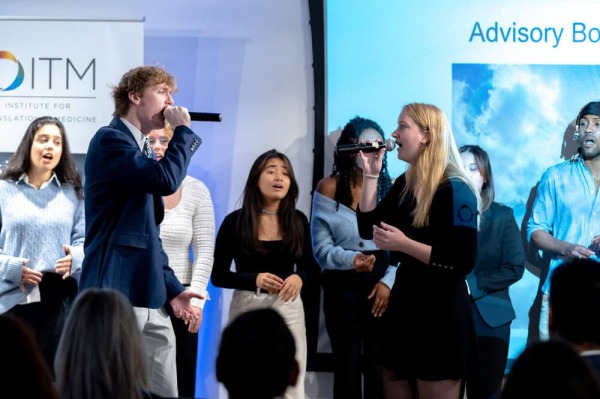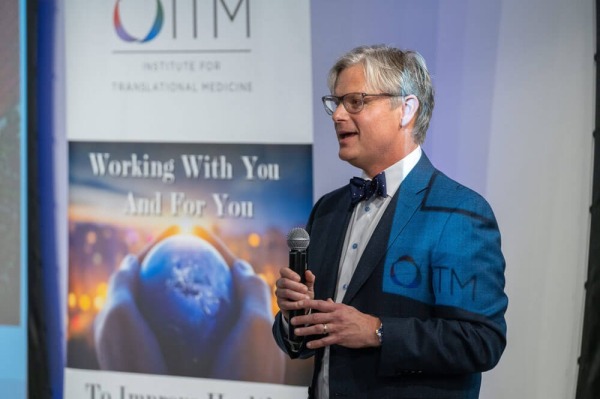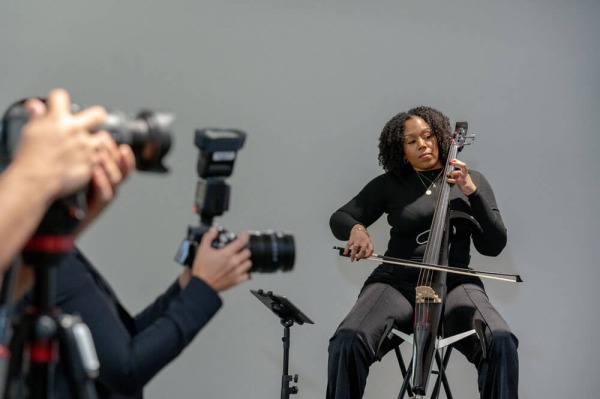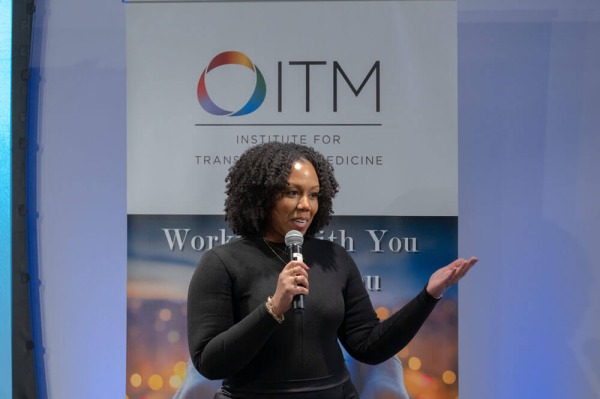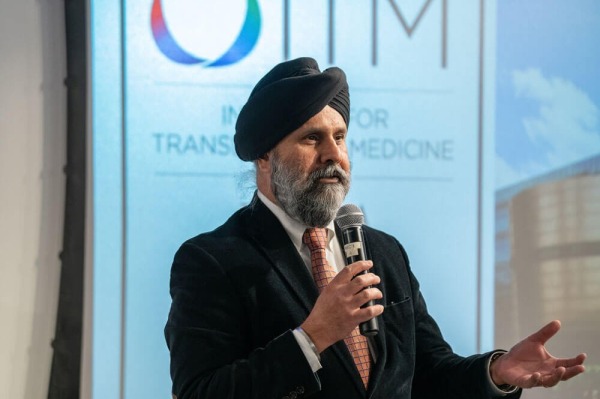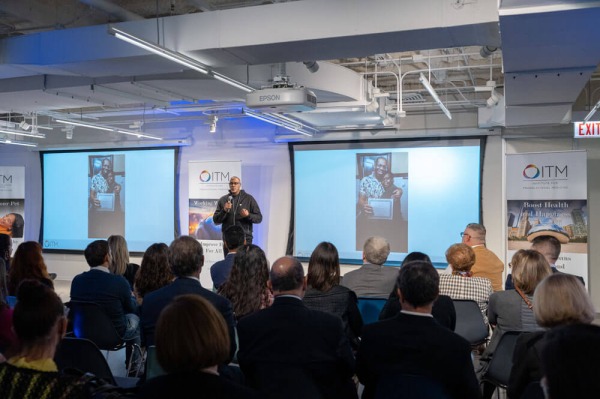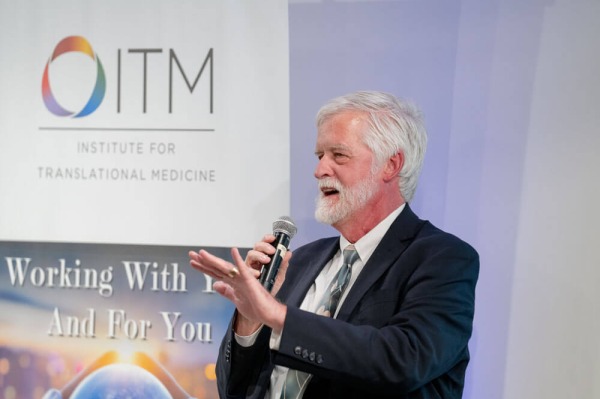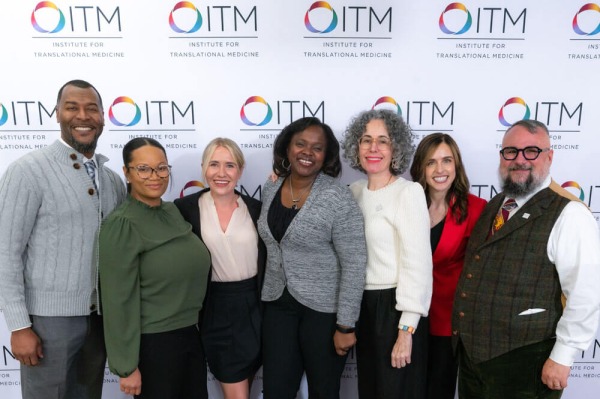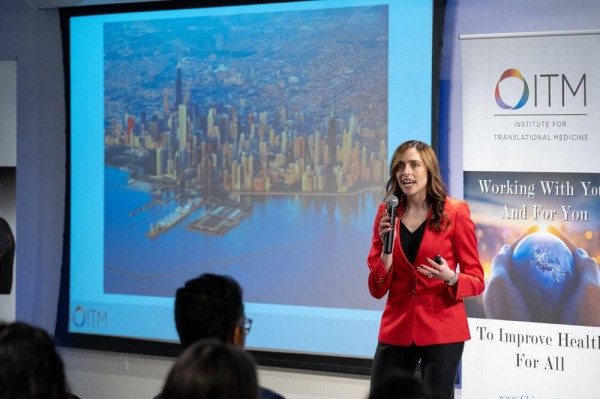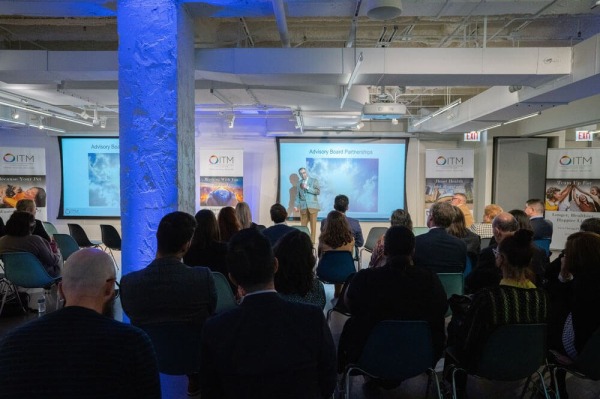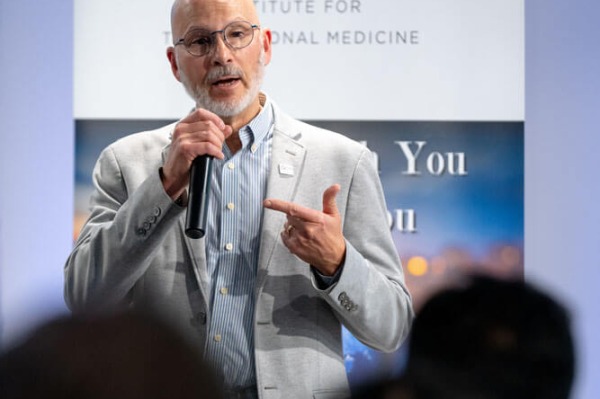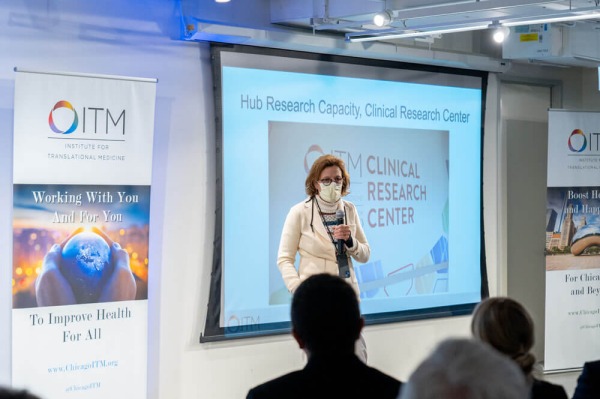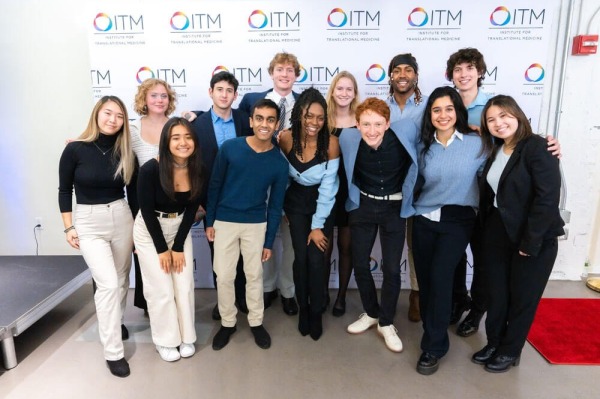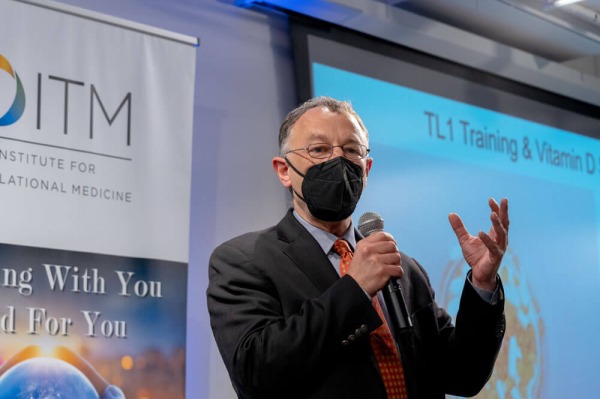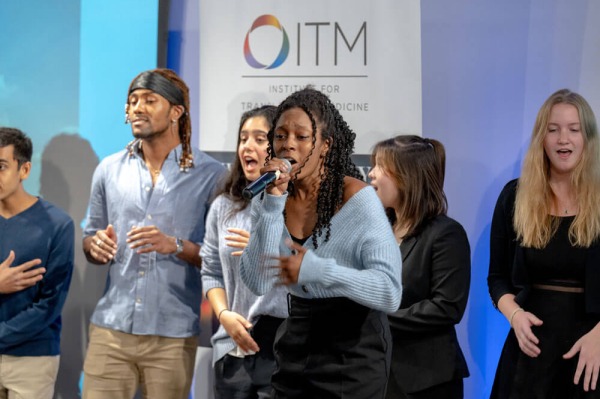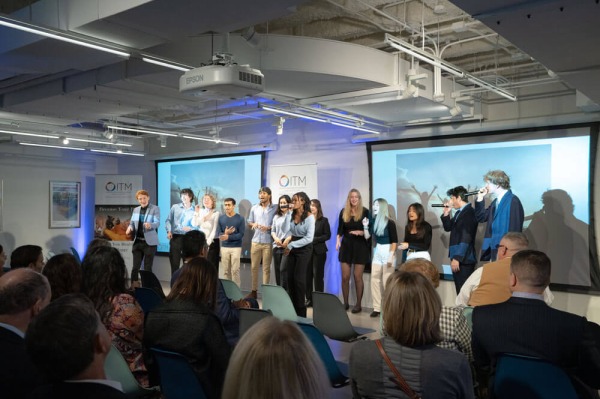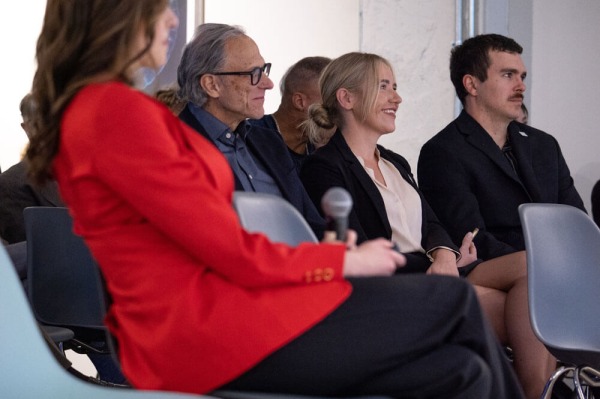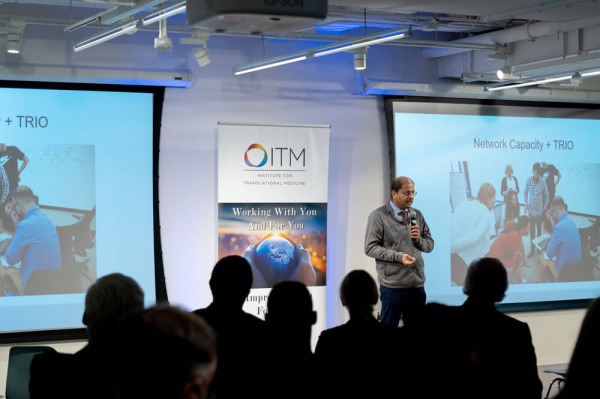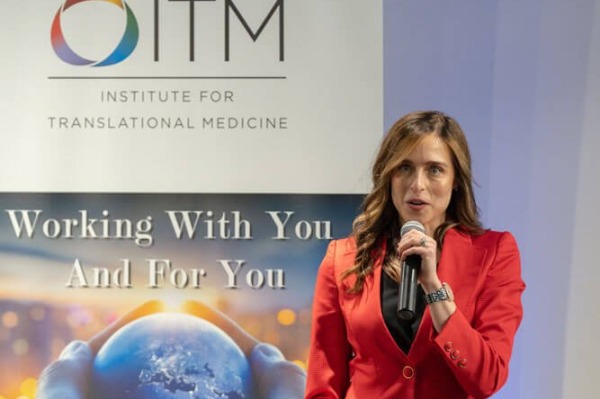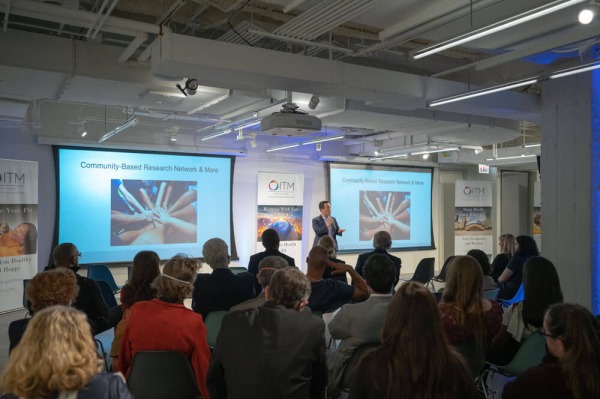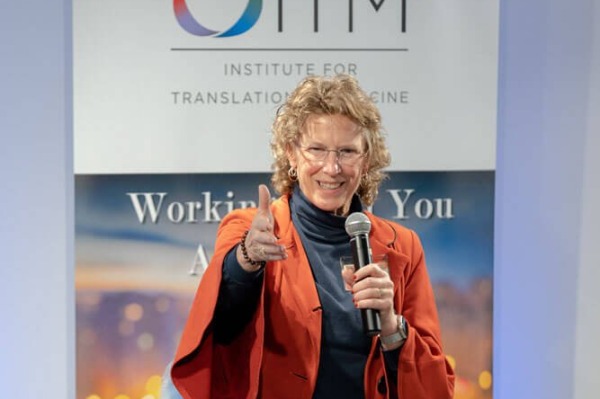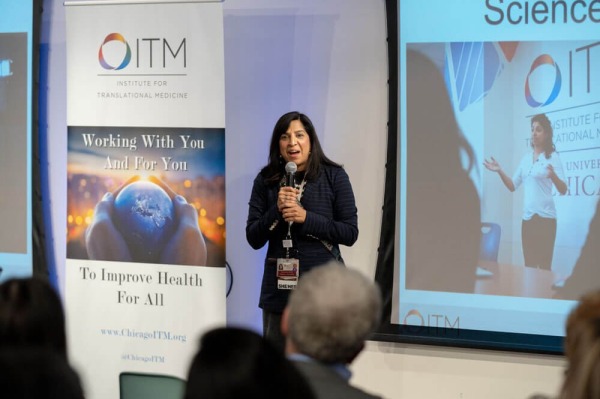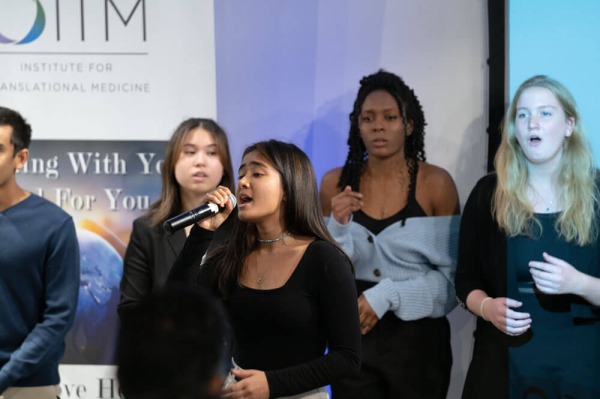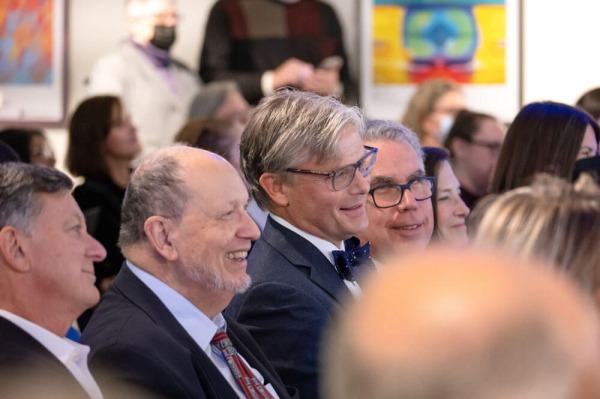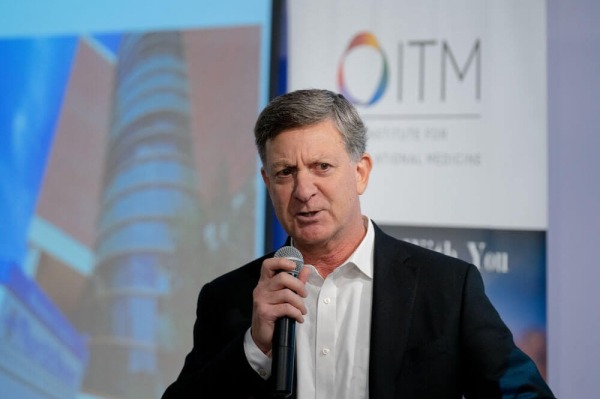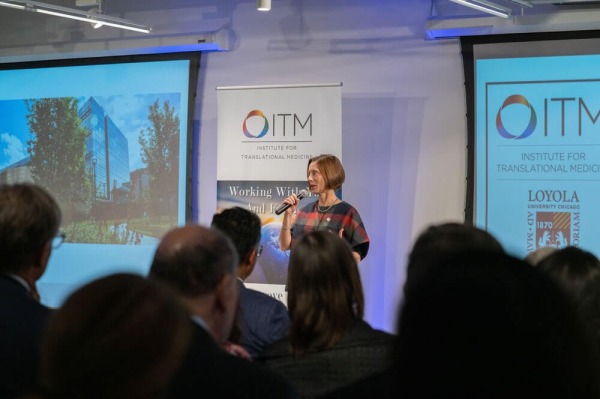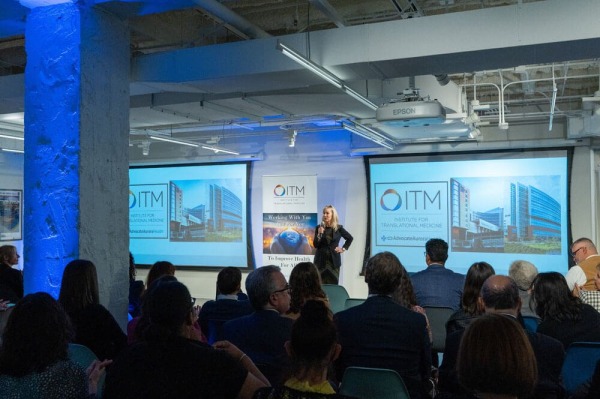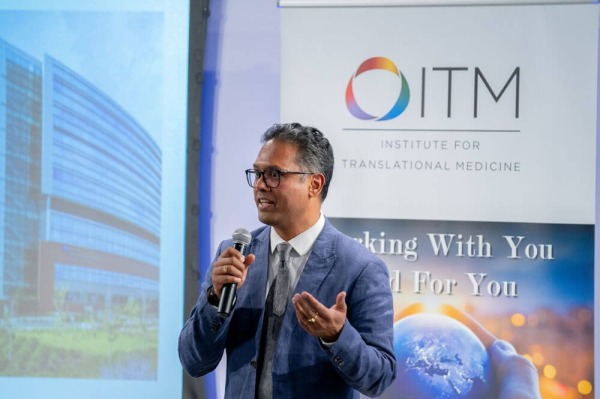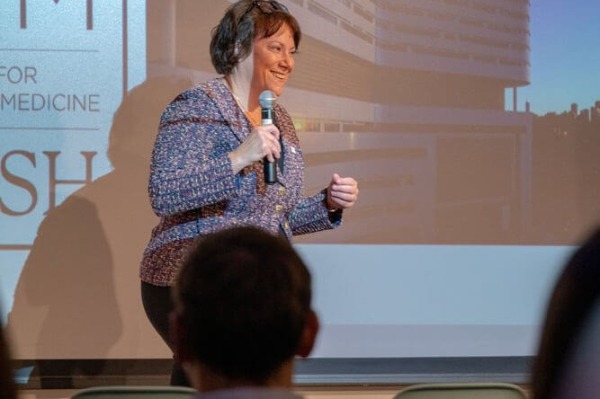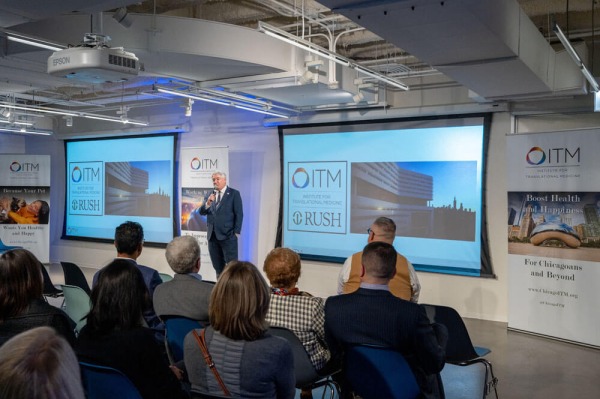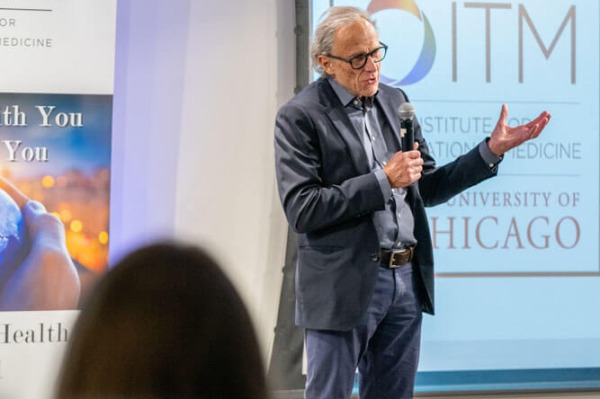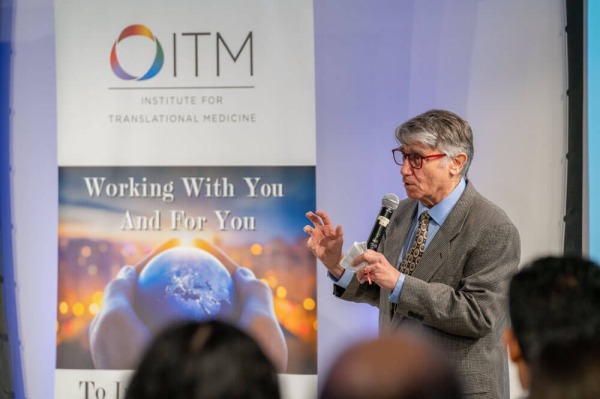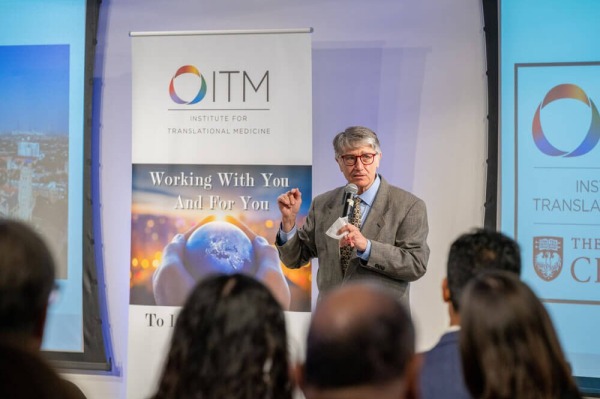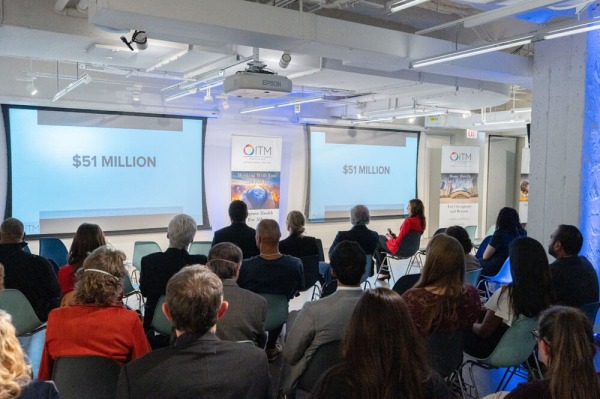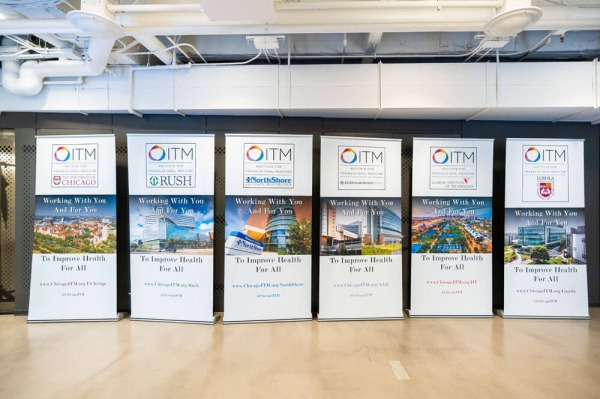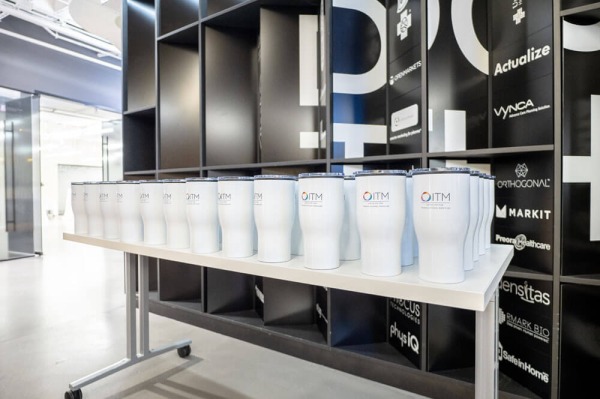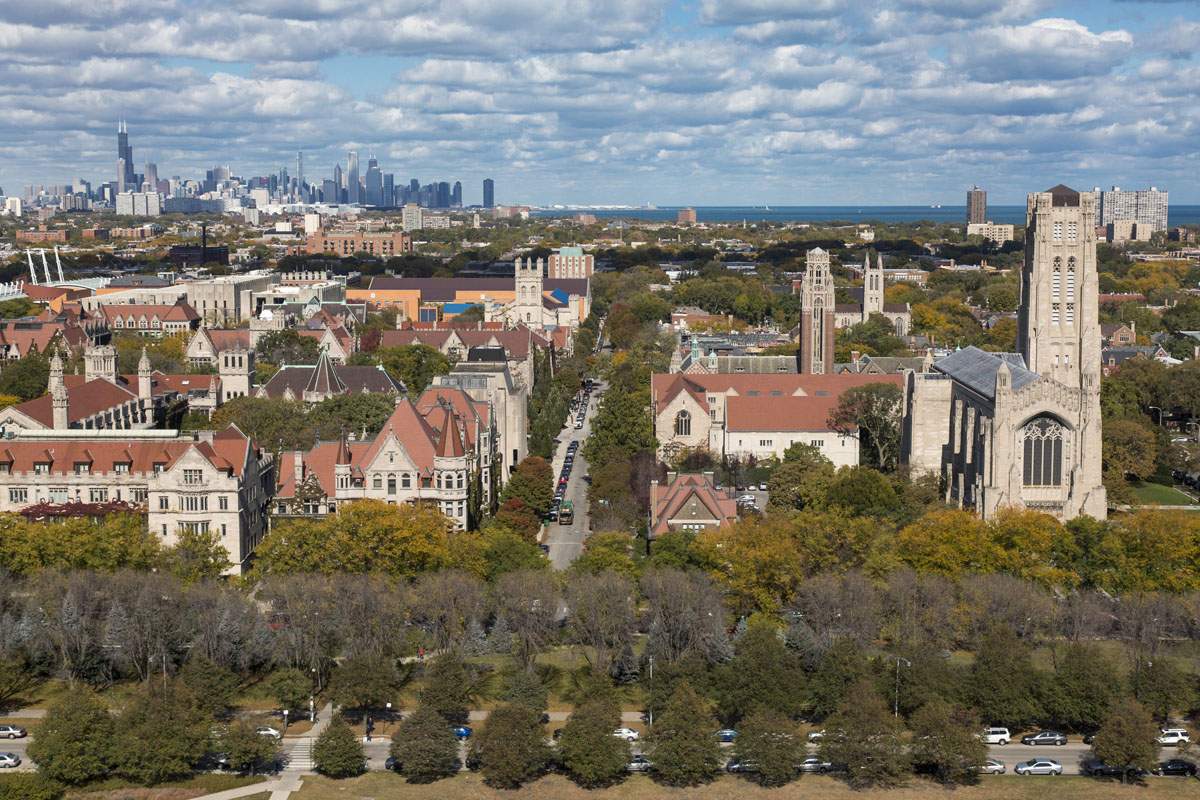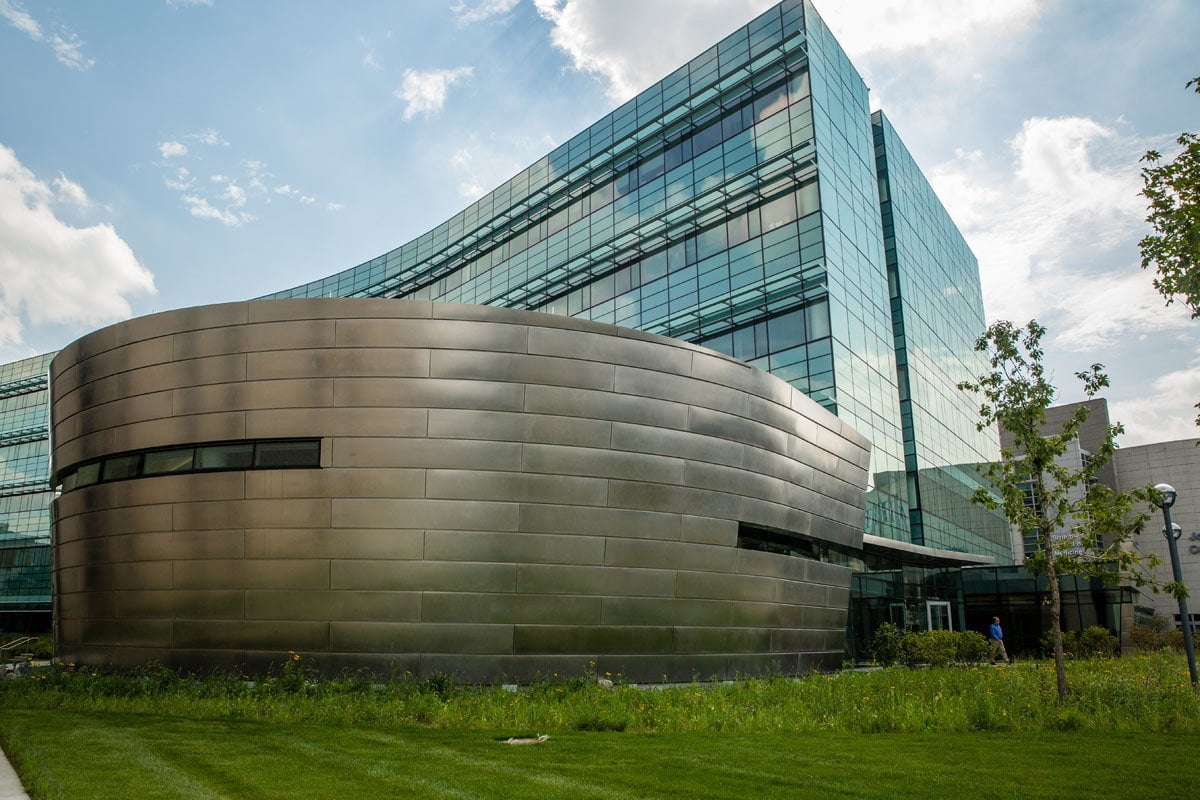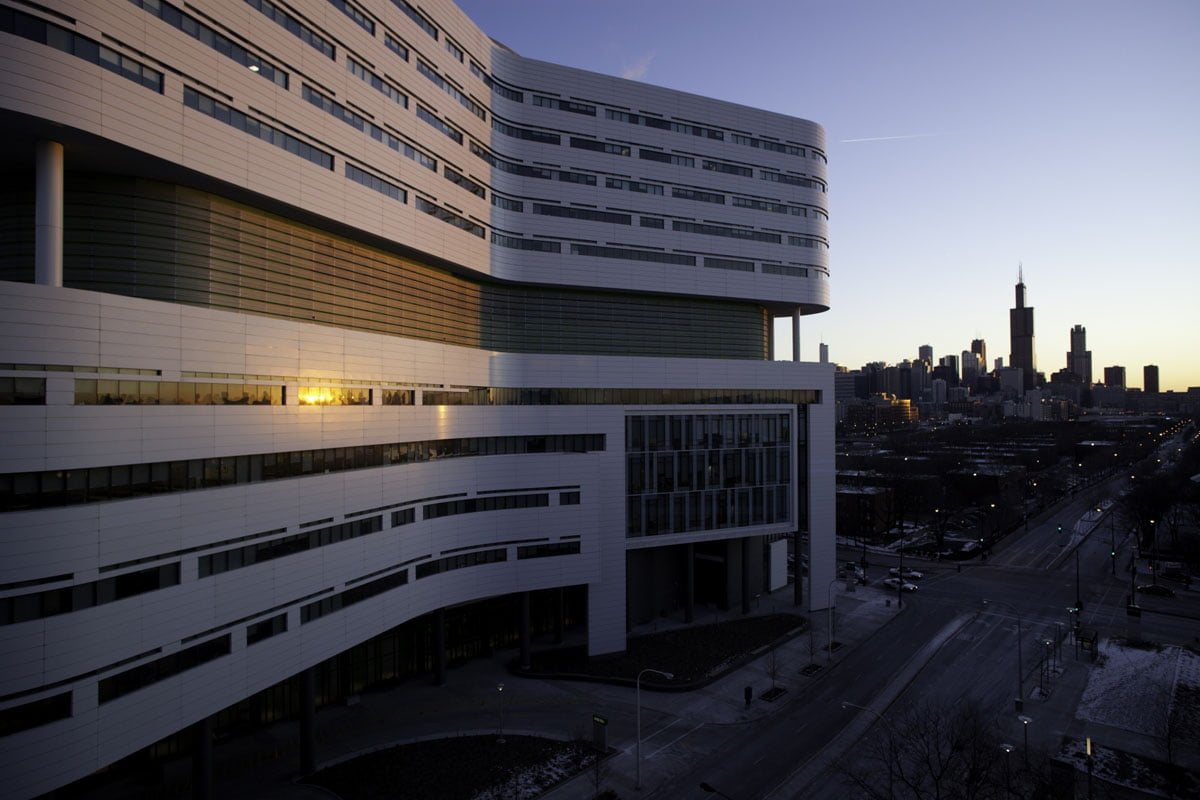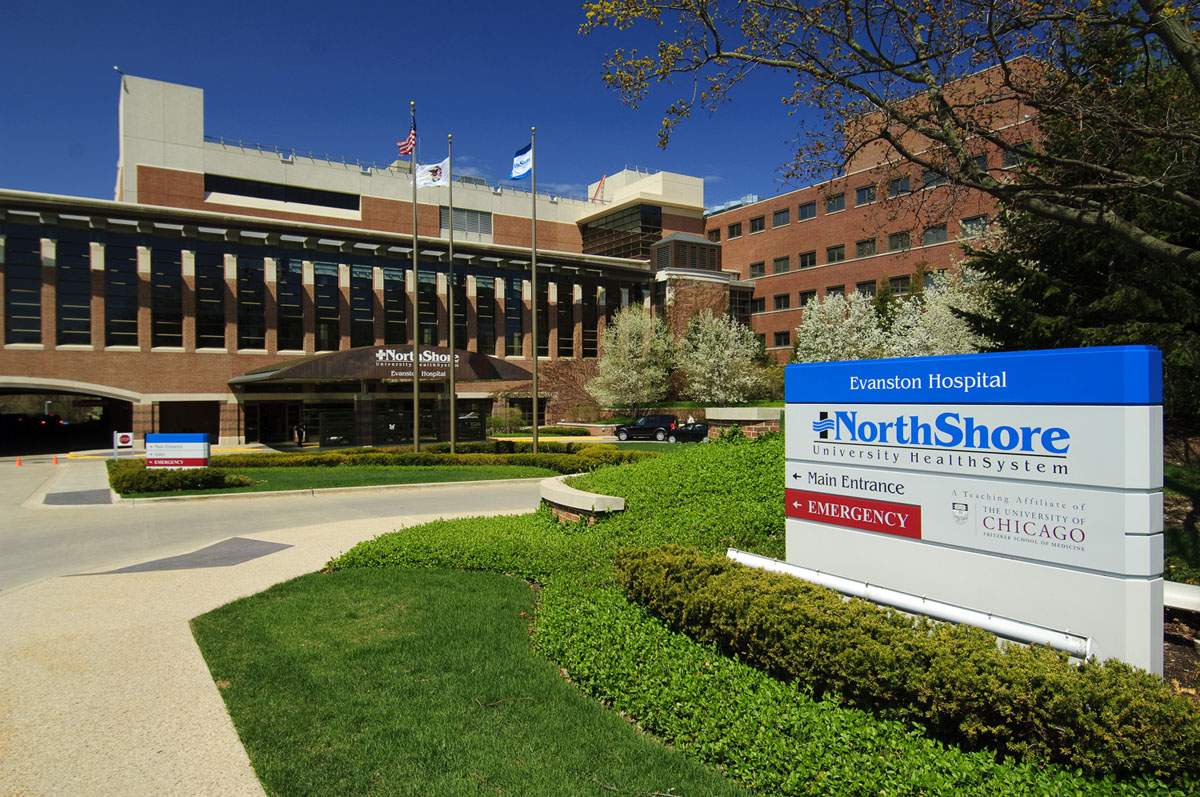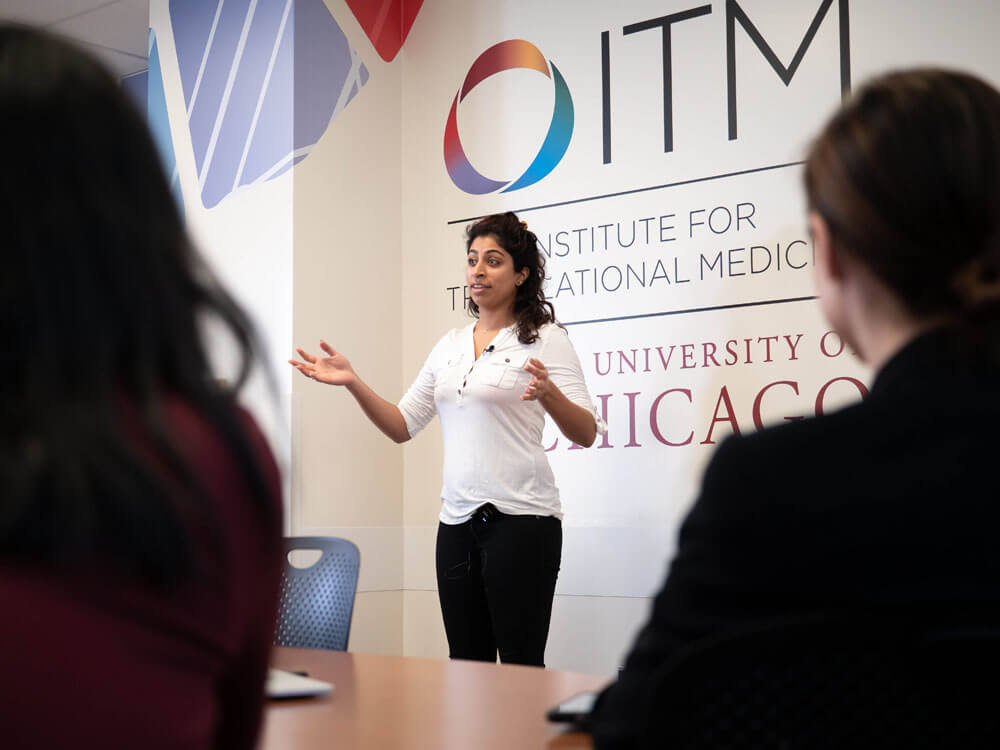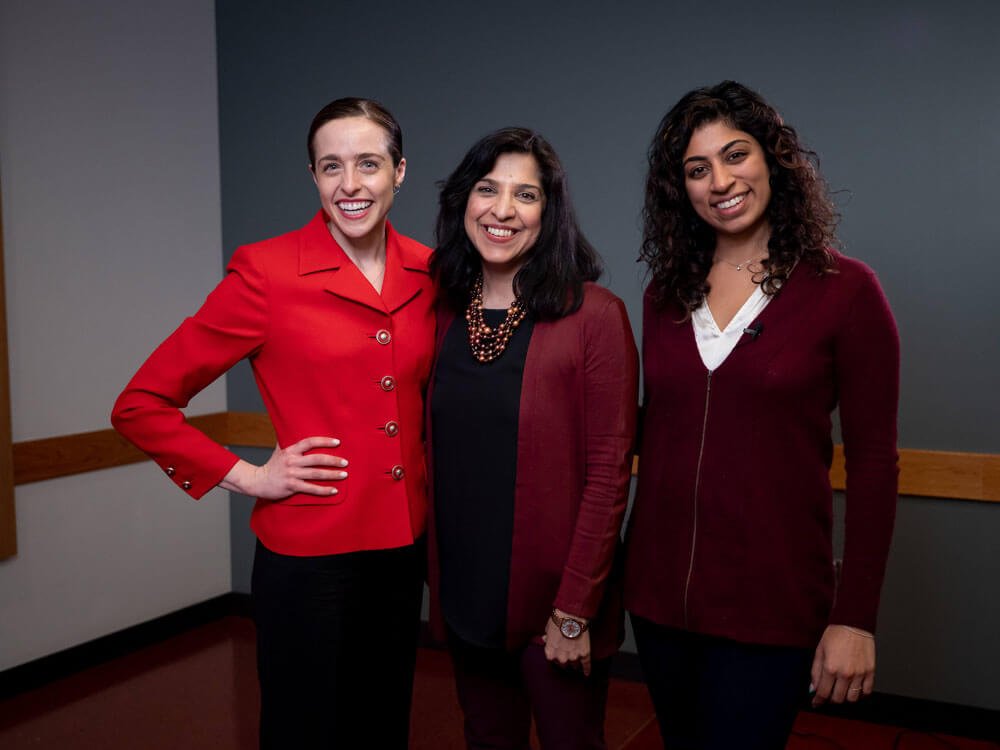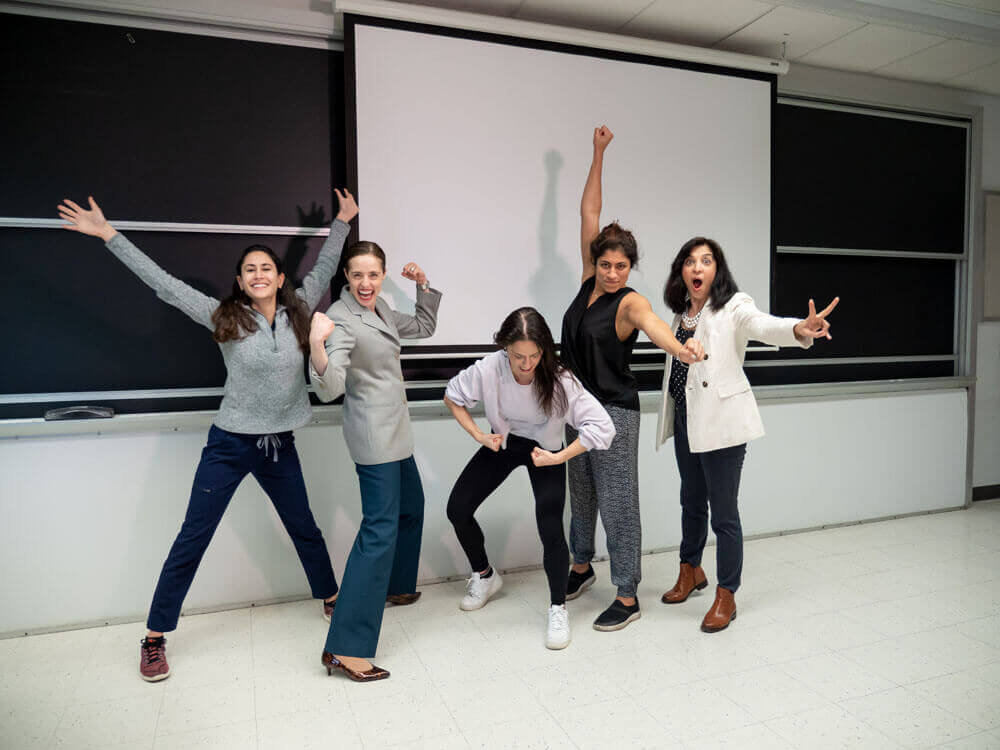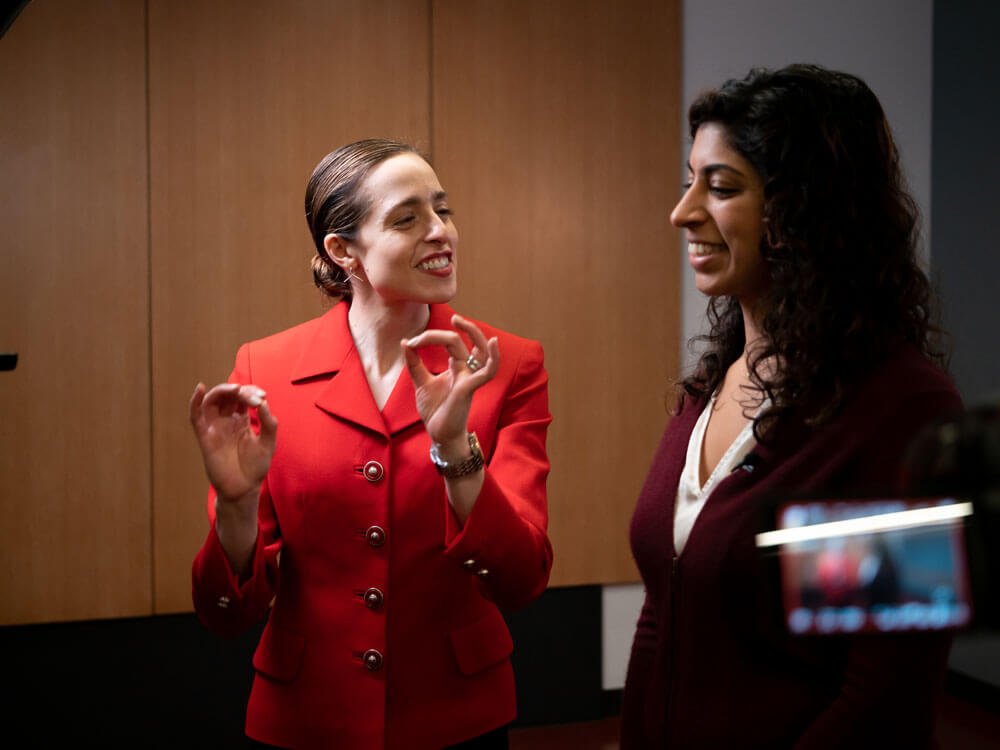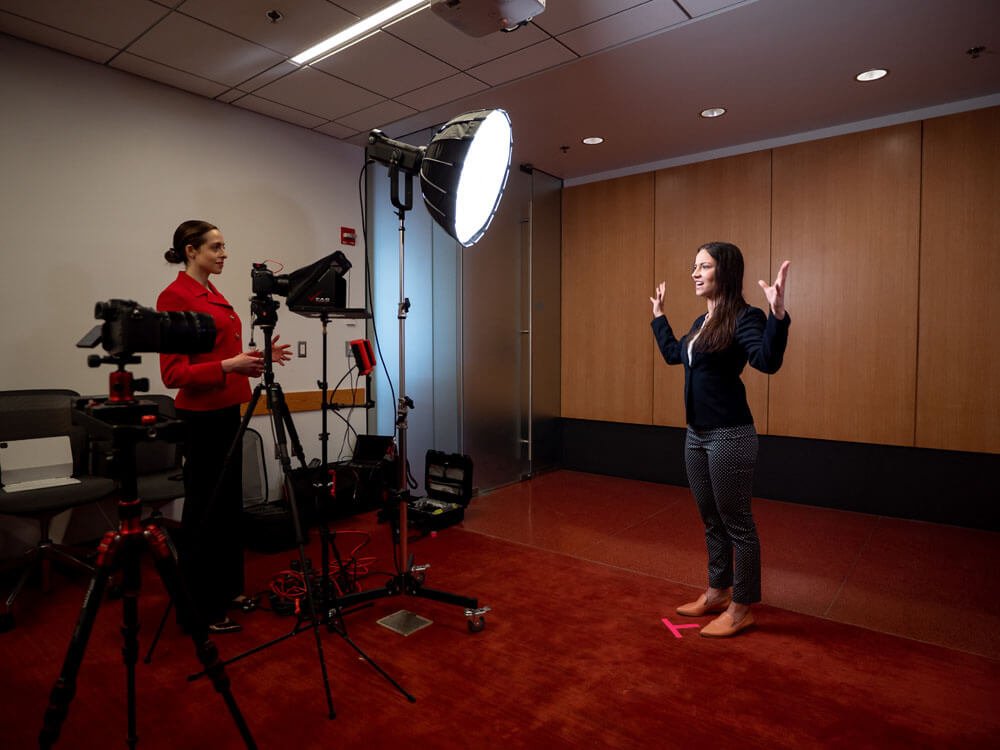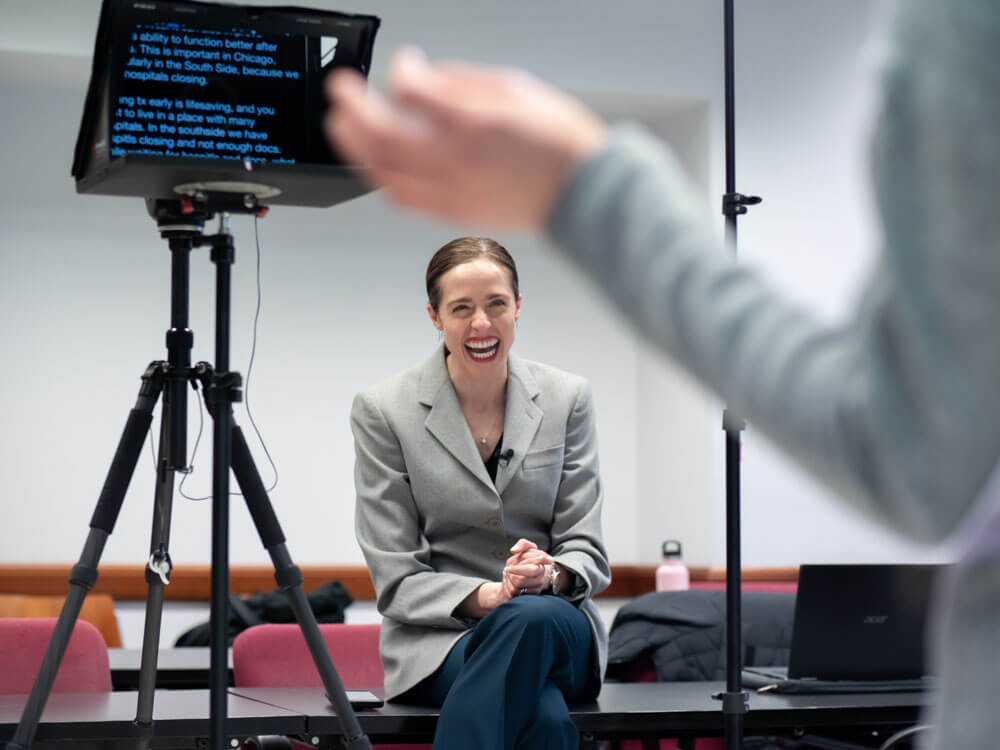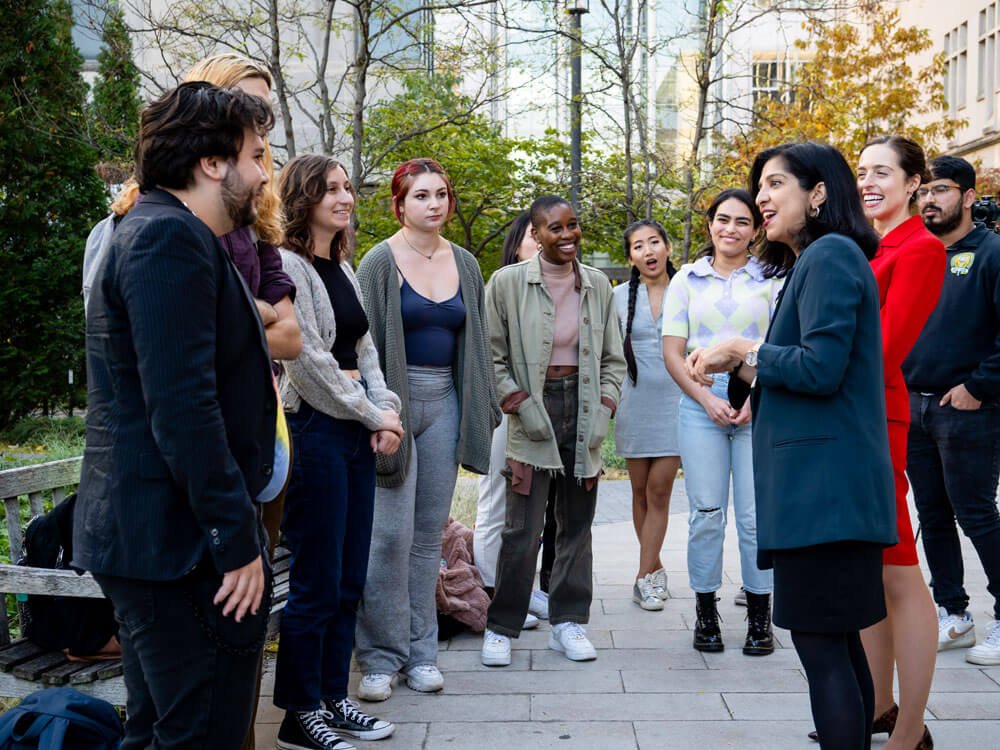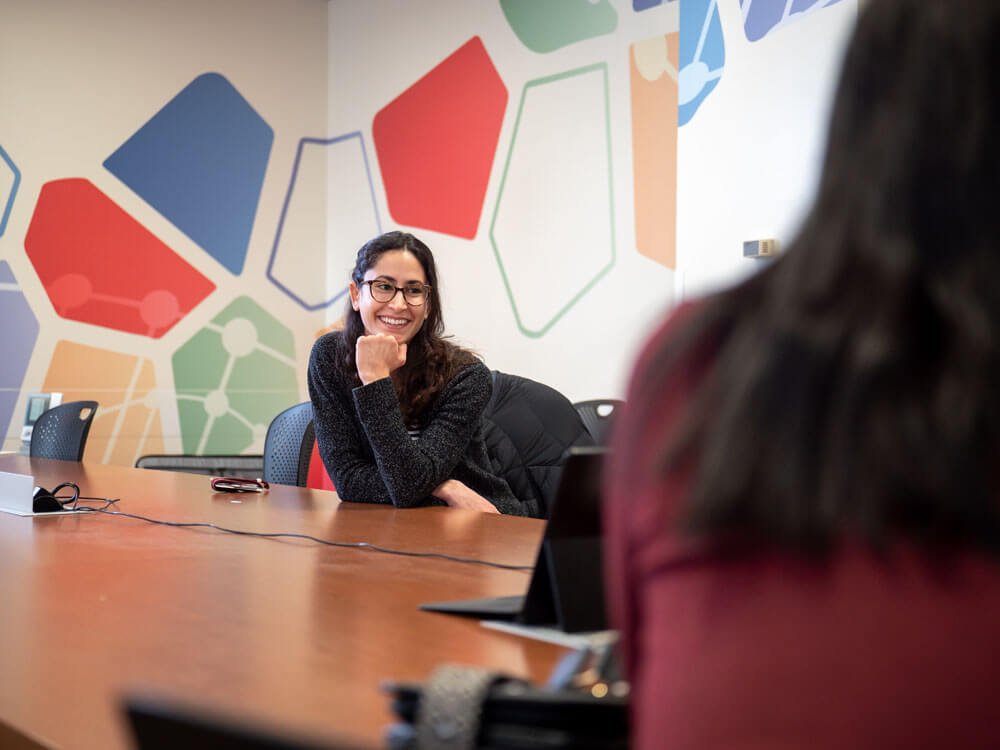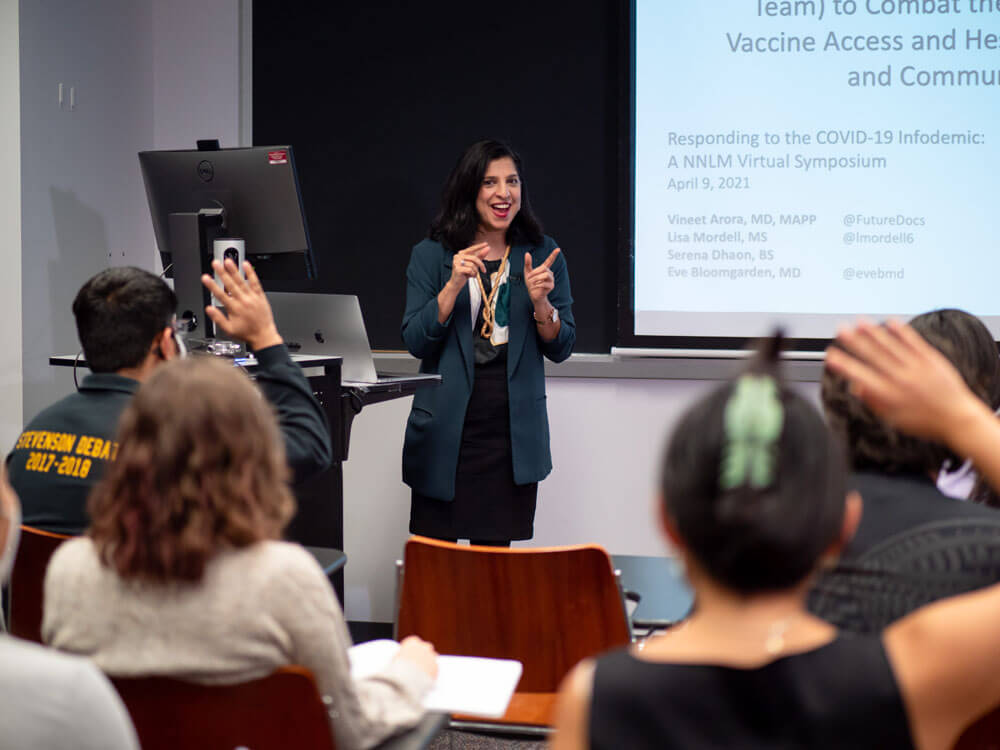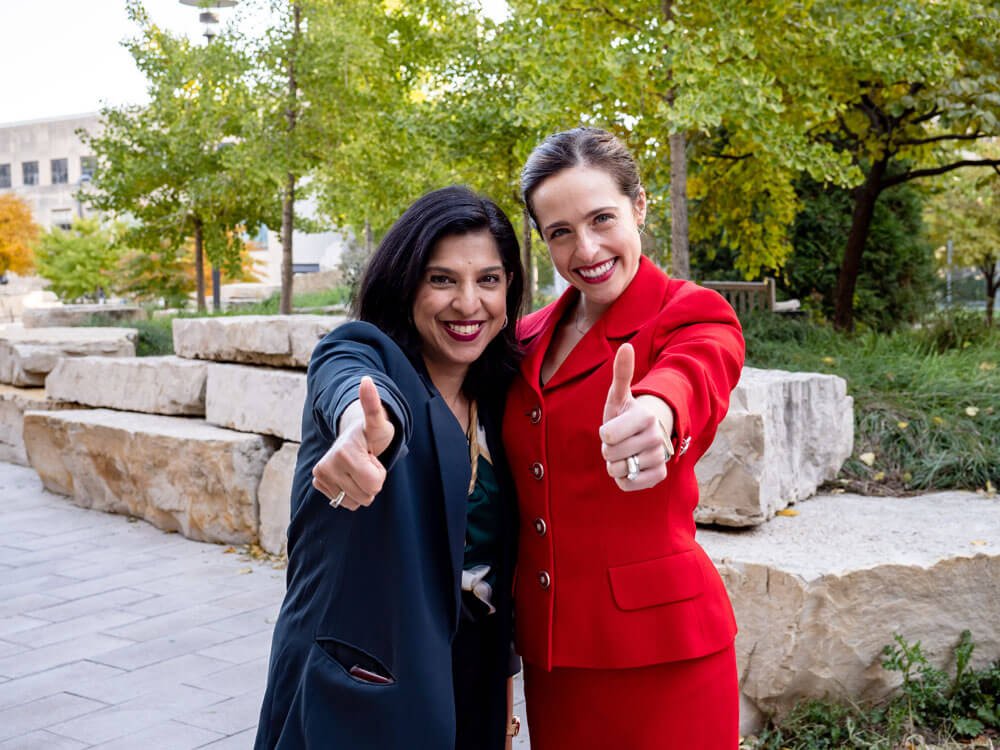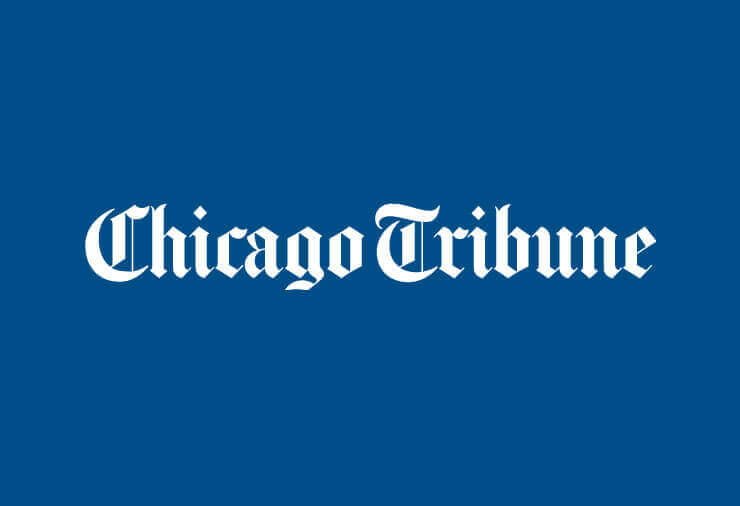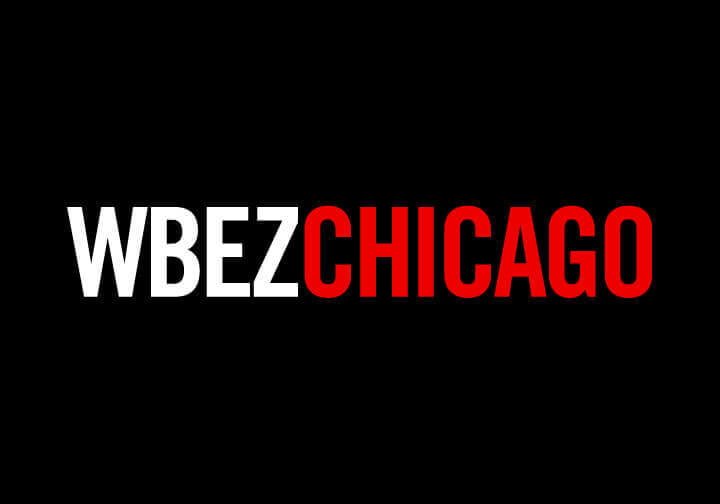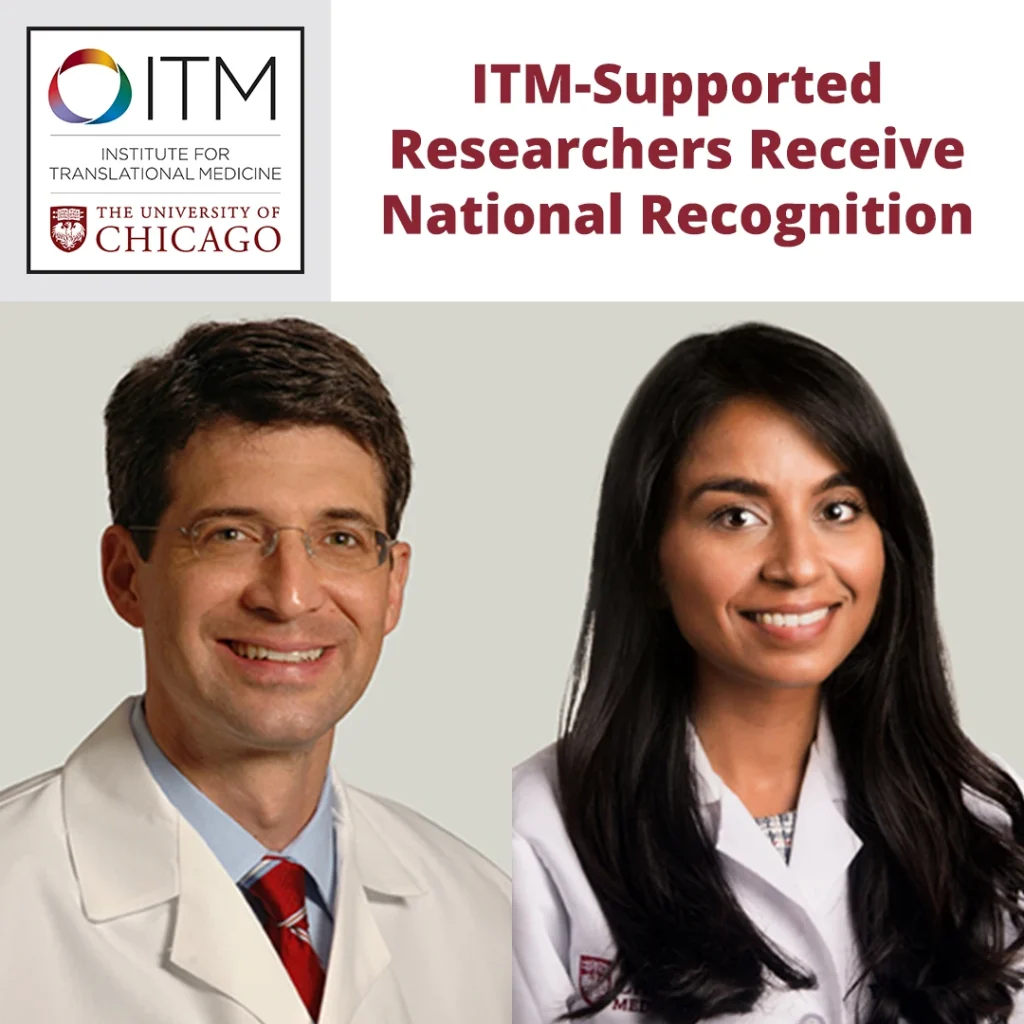
The CR Forum works to accelerate medical research and bring treatments and cures to people faster. The organization hosts an annual national competition to recognize major advances in clinical and translational science that will ultimately improve human health.
“These researchers have done incredible work to help improve the quality of life of patients and advance scientific discoveries that have real-world impacts,” said Julian Solway, MD, Founding Director of the Institute for Translational Medicine (ITM) and University of Chicago Associate Dean for Clinical Science Research.
James LaBelle, MD, PhD, Associate Professor of Pediatrics at UChicago Medicine, received the Herbert Pardes Clinical Research Excellence Award for using stem cell gene therapy to target the root cause of sickle cell disease and improve patients’ health and everyday lives. This award recognizes the best study among the Top 10 Awards given by the CR Forum, which describes the recognition as “the research study that best shows a high degree of innovation and creativity, advances science, and has an impact upon human disease.”
“On behalf of everyone involved in the study, we’re excited that our trial adds to the growing data showing that gene therapy changes the lives of patients with sickle cell disease,” LaBelle said. “Recognition by the Clinical Research Forum reflects the indefatigable and coordinated effort of many people within pharma and across academic institutions. Many people played important roles in this study, including research technicians, clinical research coordinators, physicians, nurses, data analysts, scientists, and patients.”
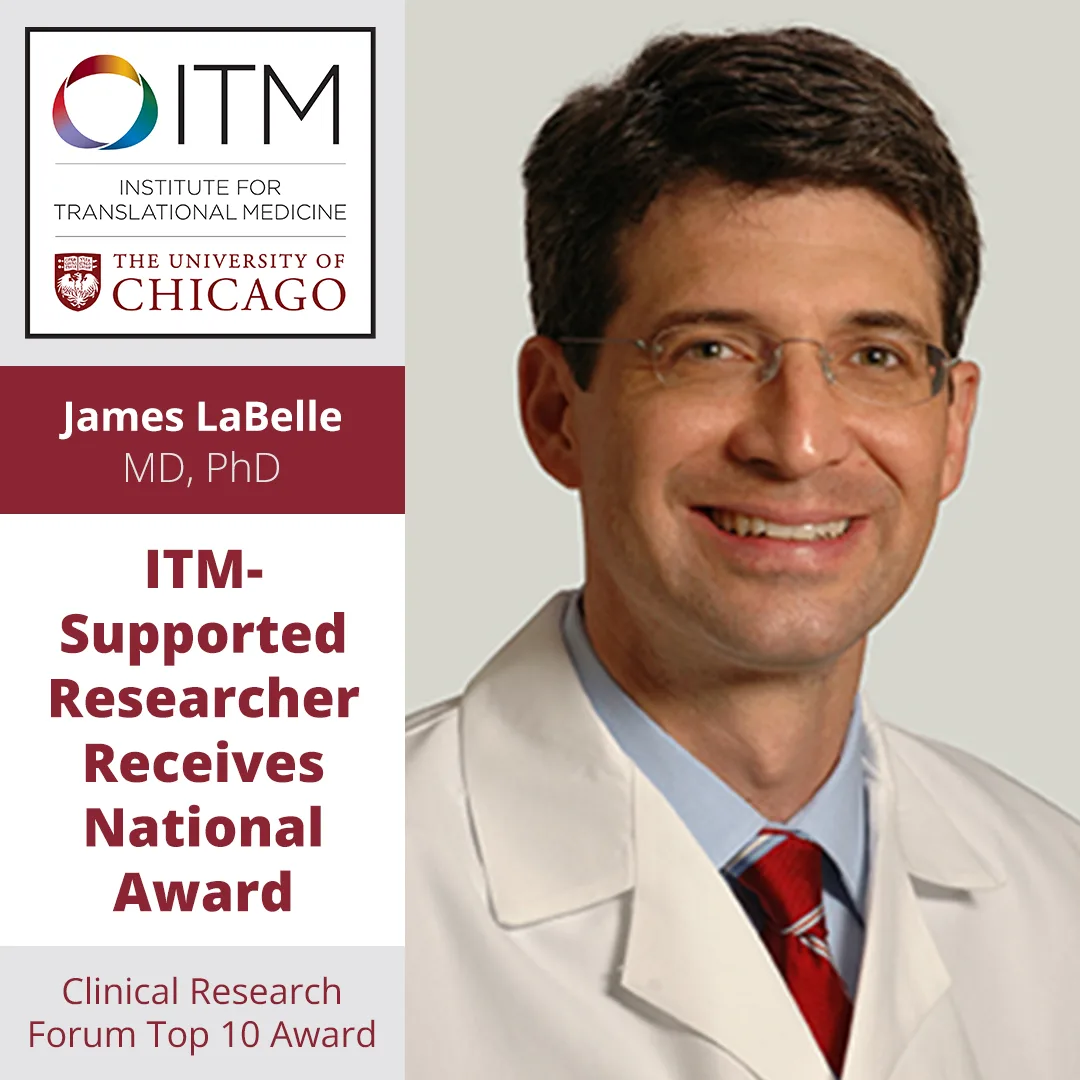
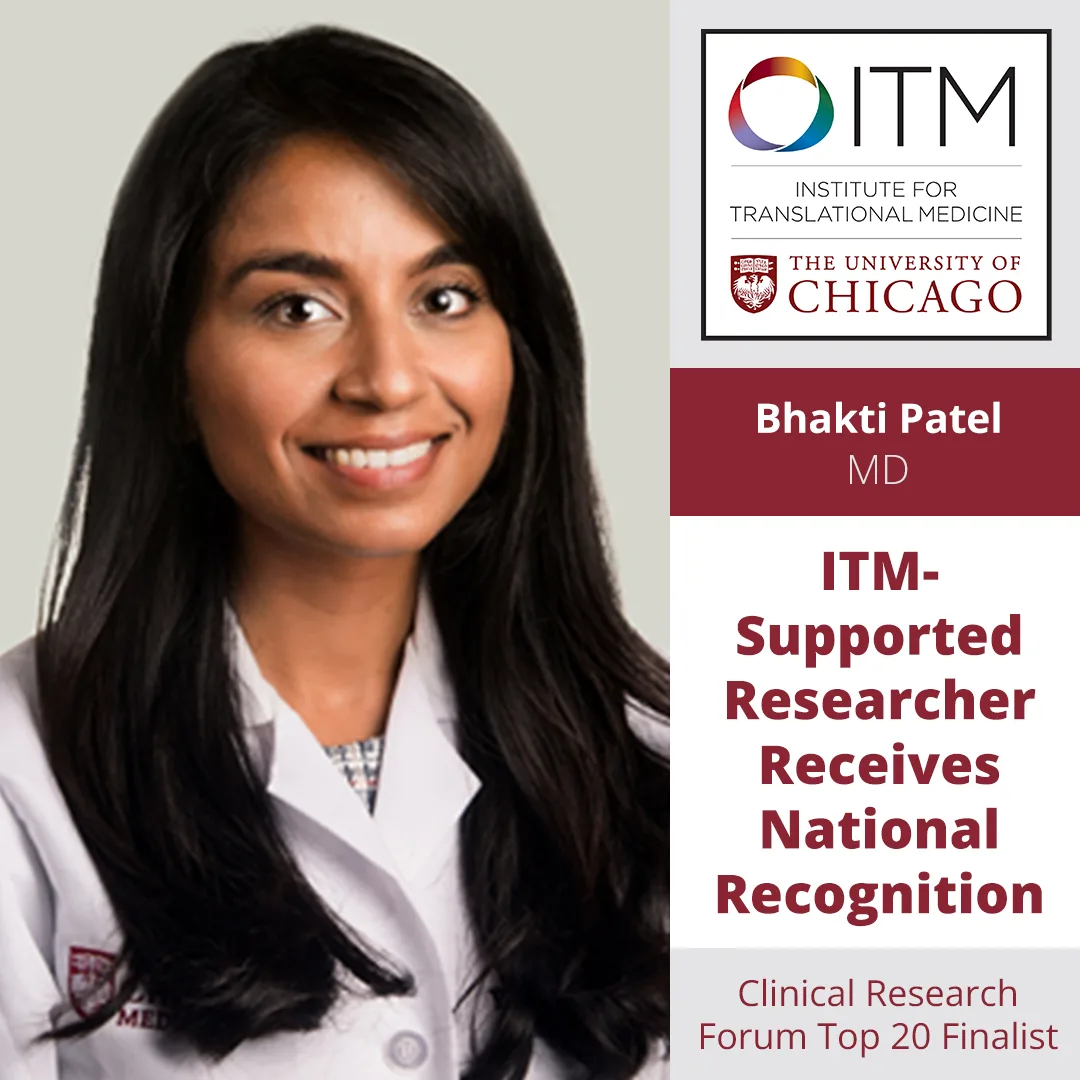
Sickle cell disease is a genetic disorder that causes red blood cells to have an abnormal shape, making patients sick with infections, pain, organ damage, and more. Black patients are more likely to be diagnosed with this condition than those of other races.
LaBelle’s study, which was published in the New England Journal of Medicine, used a special technology that can edit parts of the human genome. They used the tool – called CRISPR-Cas9 – to target the specific cells that cause sickle cell disease. The research team was able to influence the production of healthier blood cells and a protein that can protect patients against the sickle cell complications.
While treatments for sickle cell exist, this new approach is a groundbreaking because it tackles the underlying cause of the disease. Patients in the study still saw improvements in their condition and less of the bad side effects caused by sickle cell even 1.5 years after the study treatment. The treatment might also one day lead to more discoveries in other genetic conditions.
“This discovery has the potential to impact hundreds of thousands of lives and tackle a condition that disproportionately impacts Black families,” said Doriane Miller, MD, ITM Director of Health Equity Integration and University of Chicago Professor of Medicine.
LaBelle has received ITM support over the years through the ITM Core Subsidy Awards.
Bhakti Patel, MD, Assistant Professor of Medicine at UChicago Medicine, was a Top 20 finalist. Her research explored whether getting critically ill patients moving early after they’ve been on a ventilator could help them think better and be less disabled. The study found that mobilizing patients earlier could help them feel better in the long run.
“As a practicing ICU physician, I was struck by the persistent disability my patients suffered after surviving critical illness,” Patel said. “The pandemic shed light on this important issue as ‘brain fog’ and functional impairment after illness received incredible interest and public awareness, but no known treatments have been found. This award from the Clinical Research Forum recognizing our efforts to discover the first intervention to prevent cognitive impairment in ICU patients is validating and highlights what we can do now to prevent disability in our patients.”
Over the years Patel has received ITM support from its Core Subsidy Awards as well as the ITM Lung Omics K Scholar program.
“The ITM is thrilled to help support the careers of researchers like these who are making concrete differences in people’s lives,” said David Meltzer, MD, PhD, Director of the ITM and University of Chicago Professor of Medicine.
Click Here to View the Top Ten Clinical Research Achievement Awards List
About the Institute for Translational Medicine (ITM)
The ITM is a partnership between the University of Chicago and Rush in collaboration with Advocate Aurora Health Care, Illinois Institute of Technology (Illinois Tech), Loyola University Chicago, and Endeavor Health that’s fueled by about $51 million in grants from the National Center for Advancing Translational Sciences at the National Institutes of Health through its Clinical and Translational Science Awards (CTSA) Program.



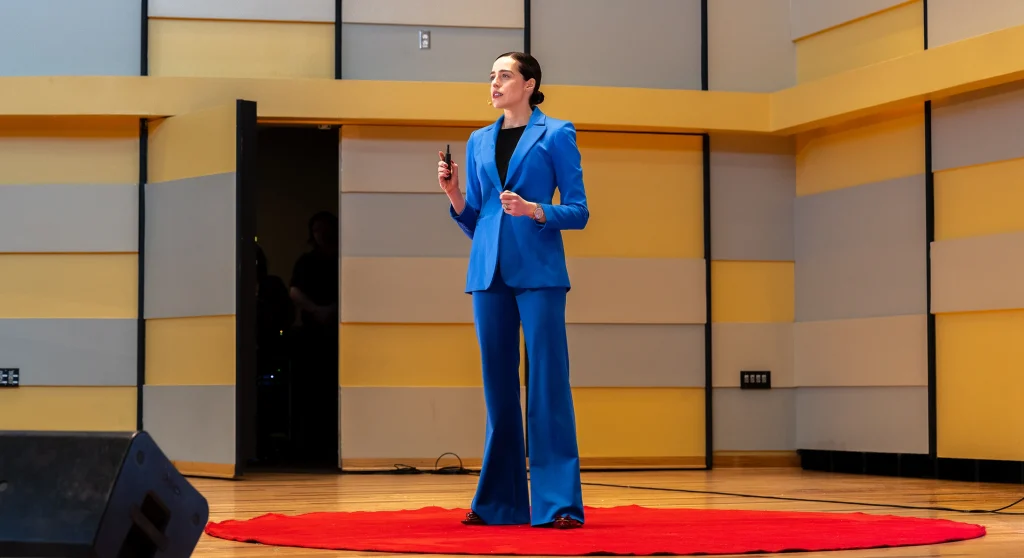
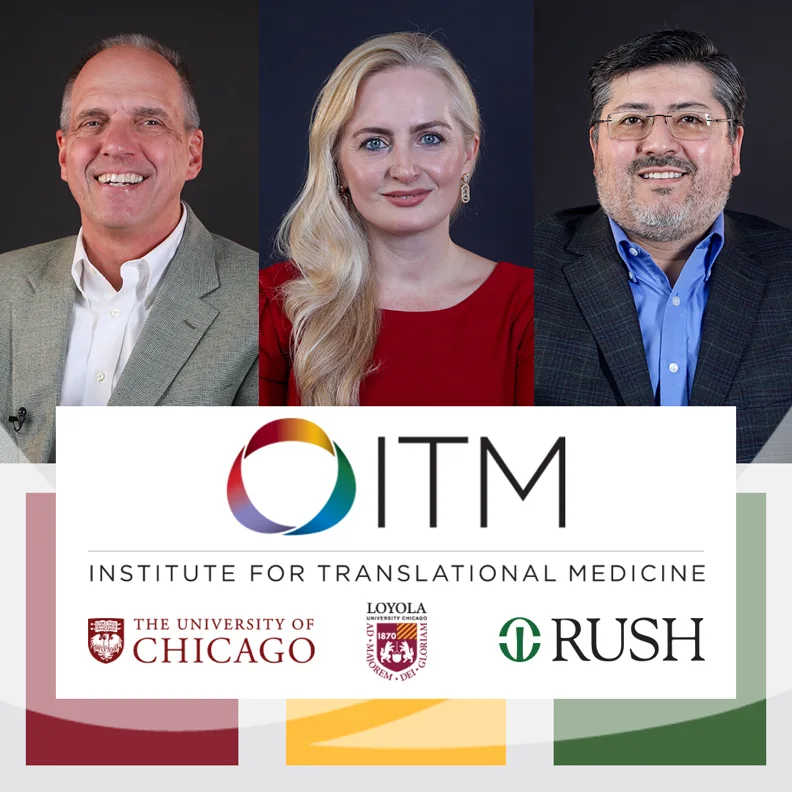
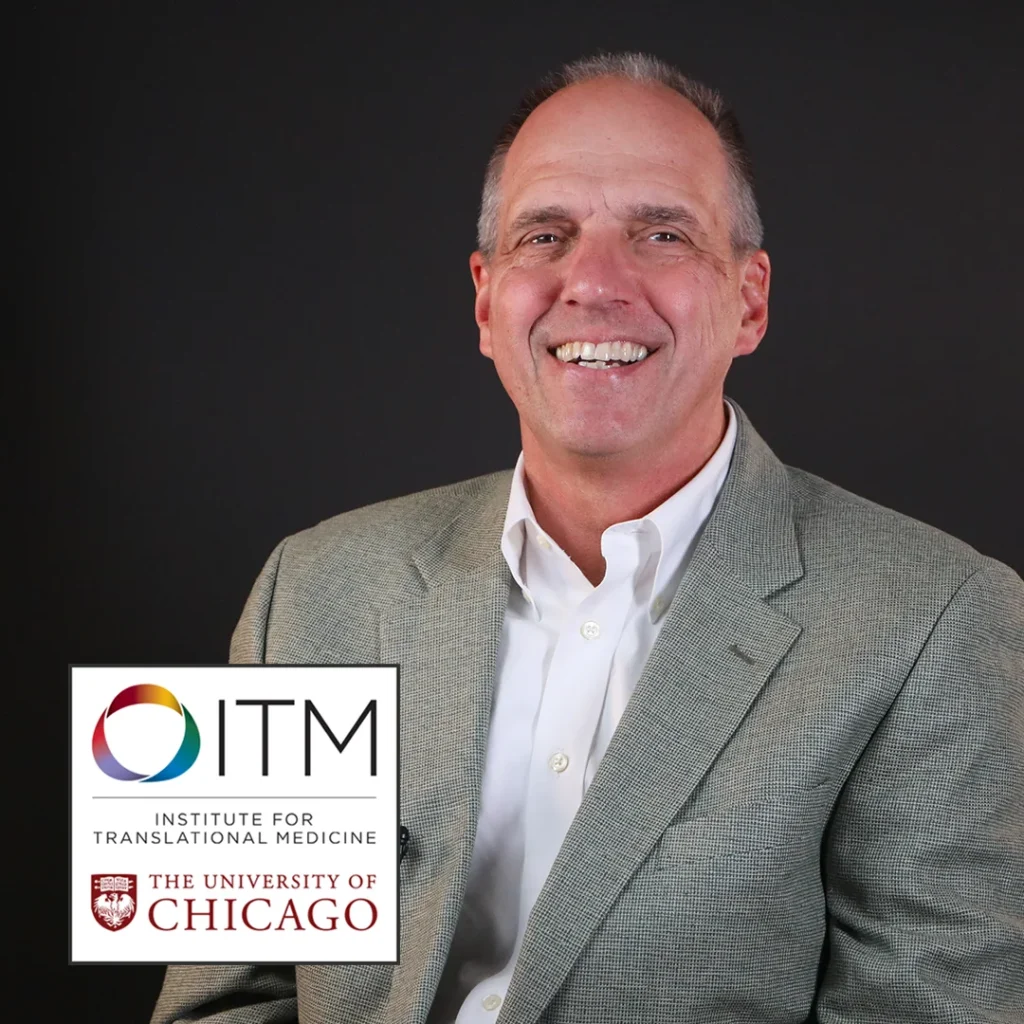
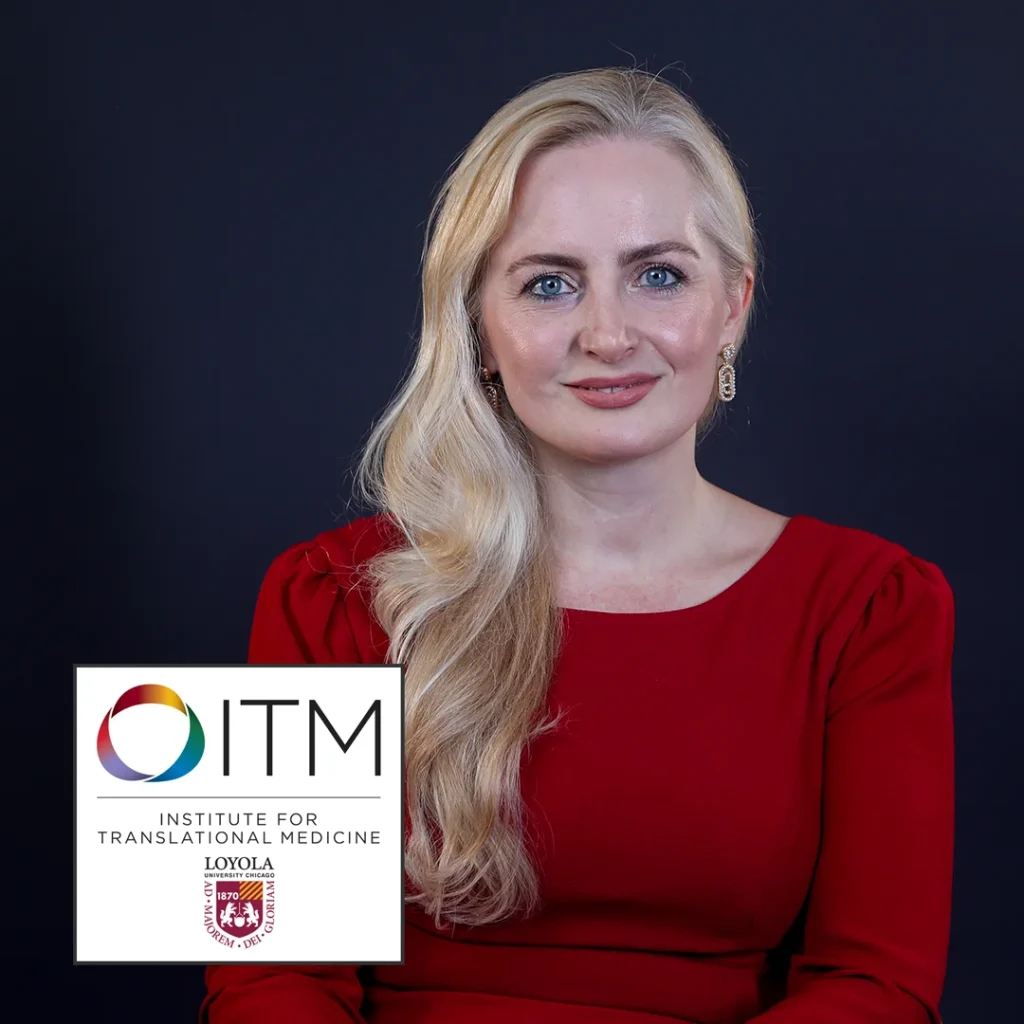
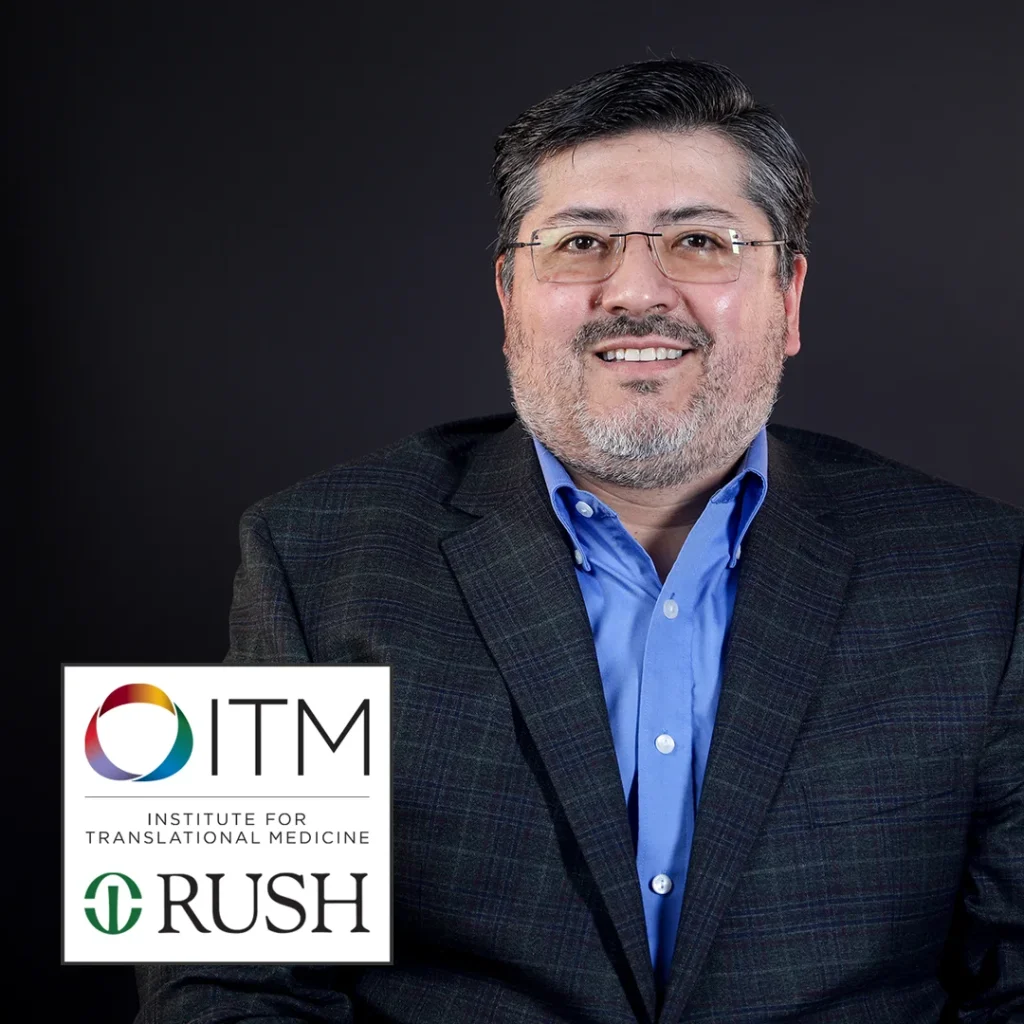

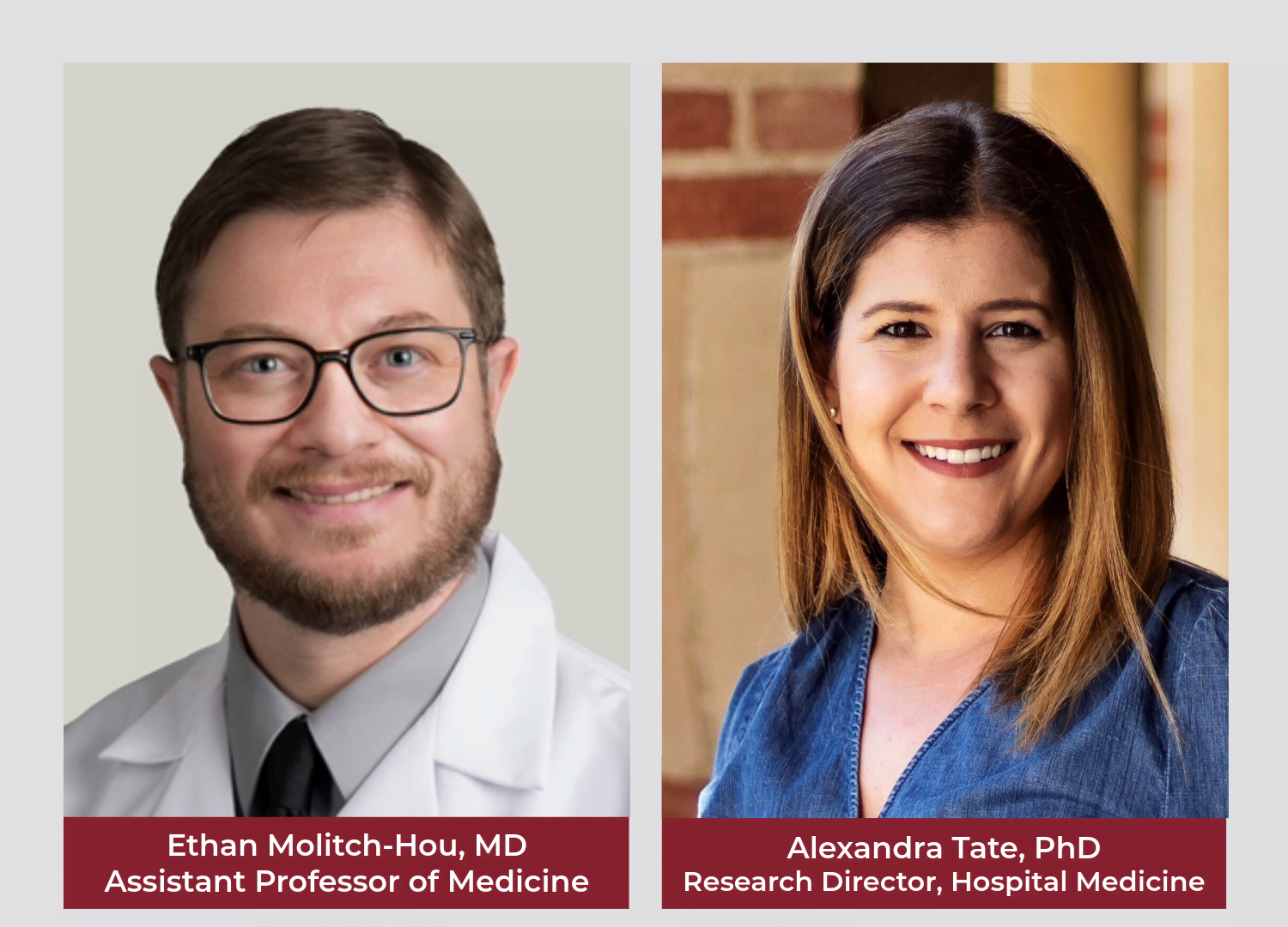



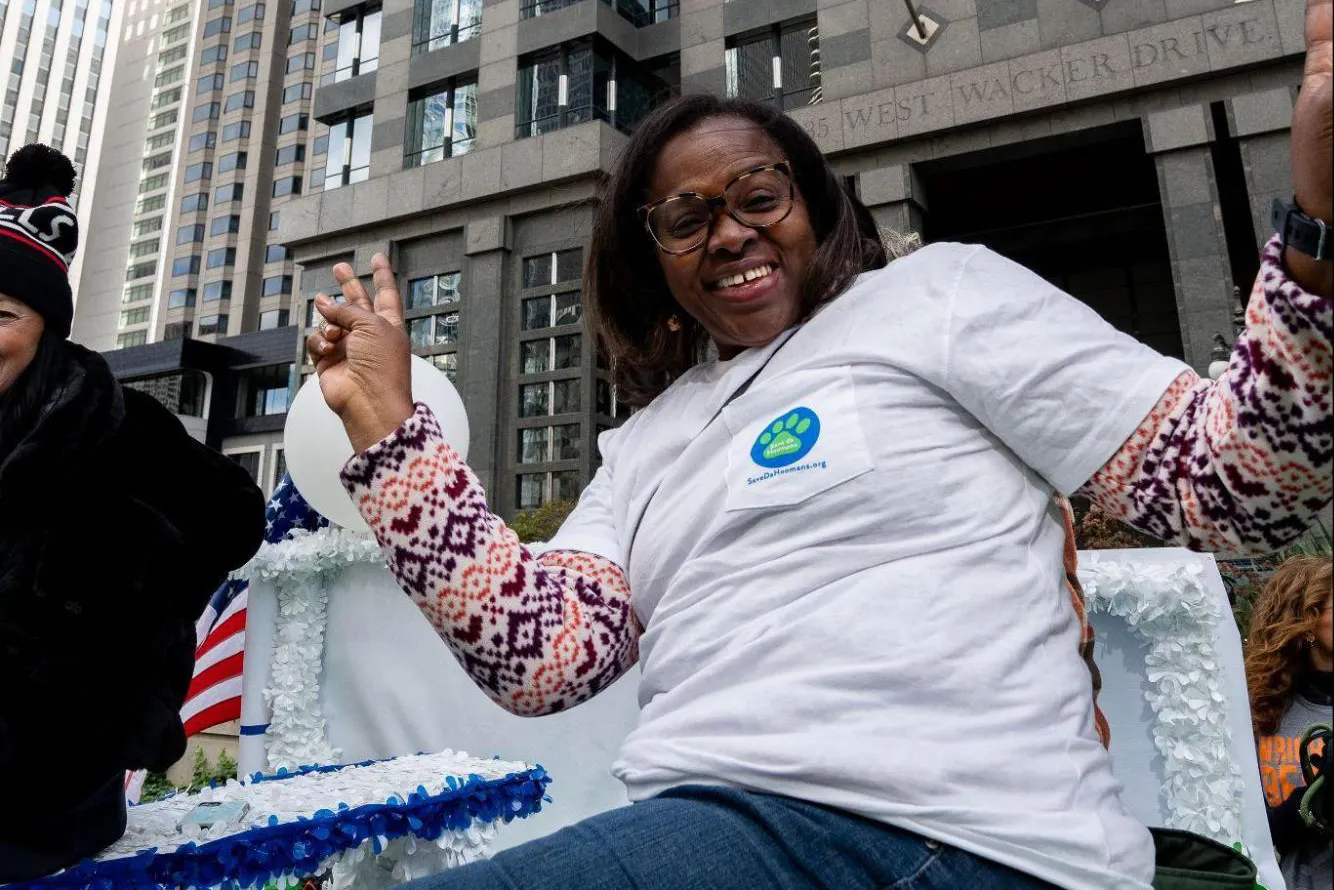






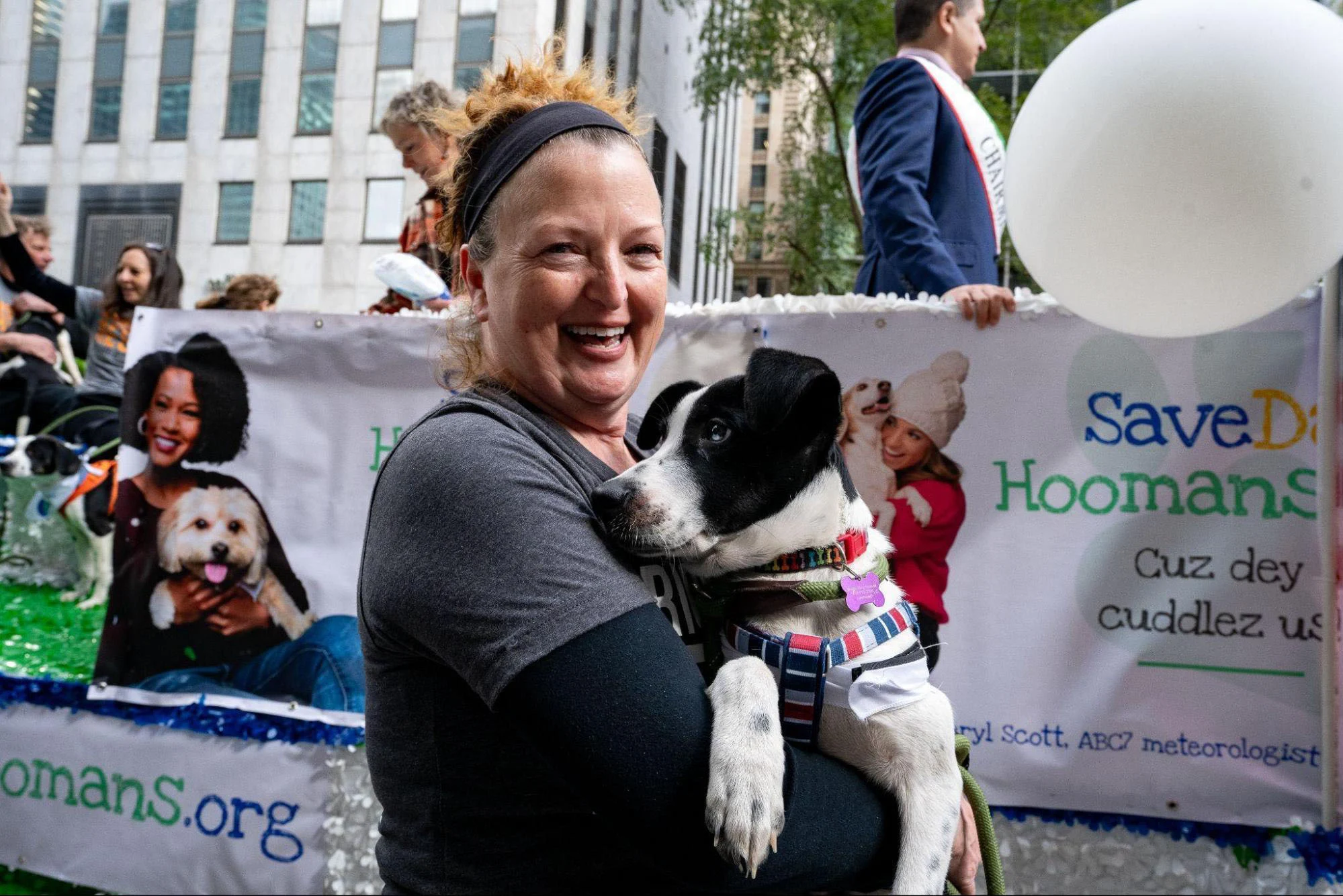
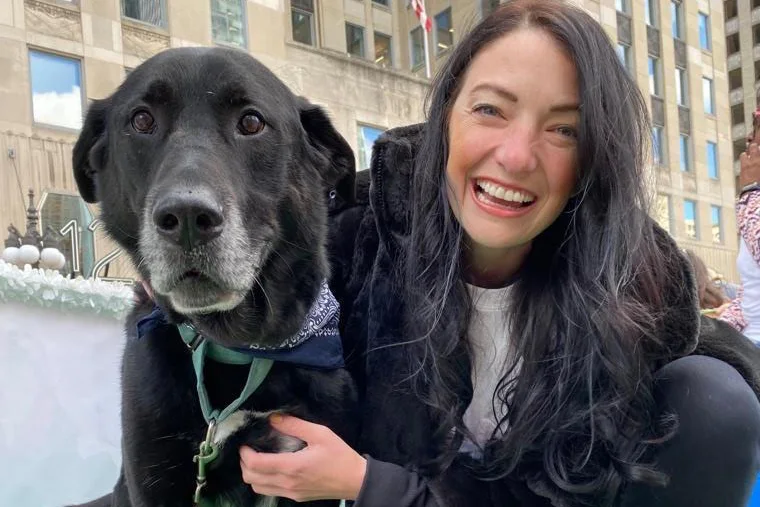
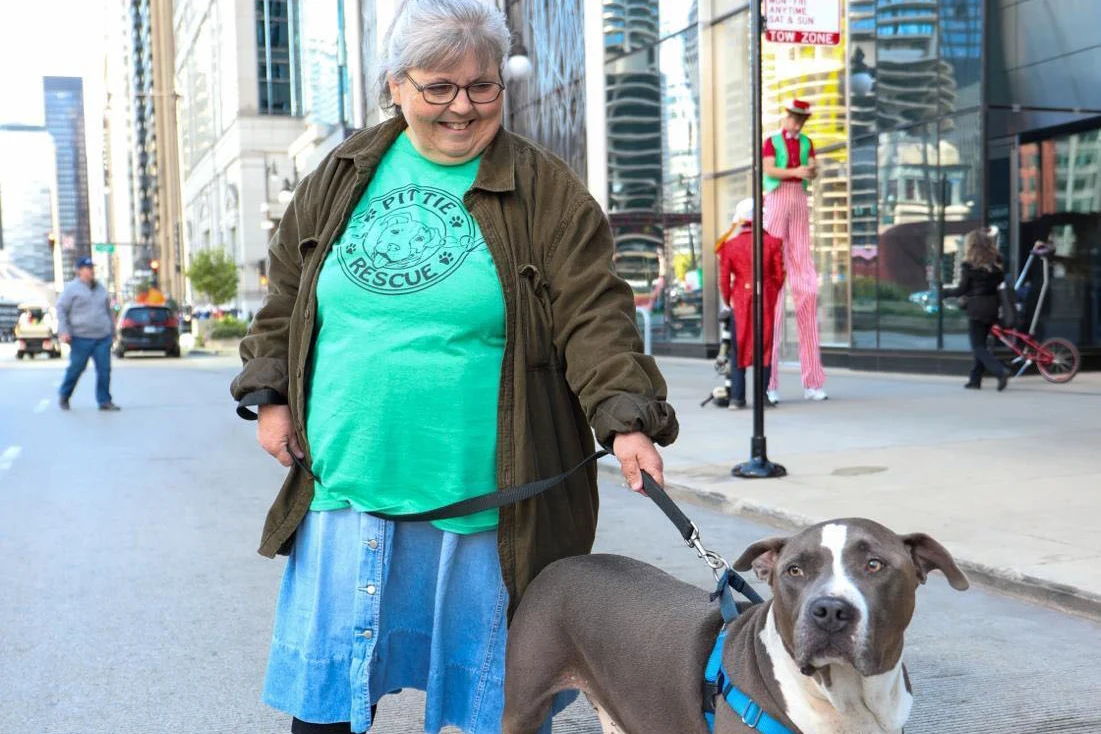


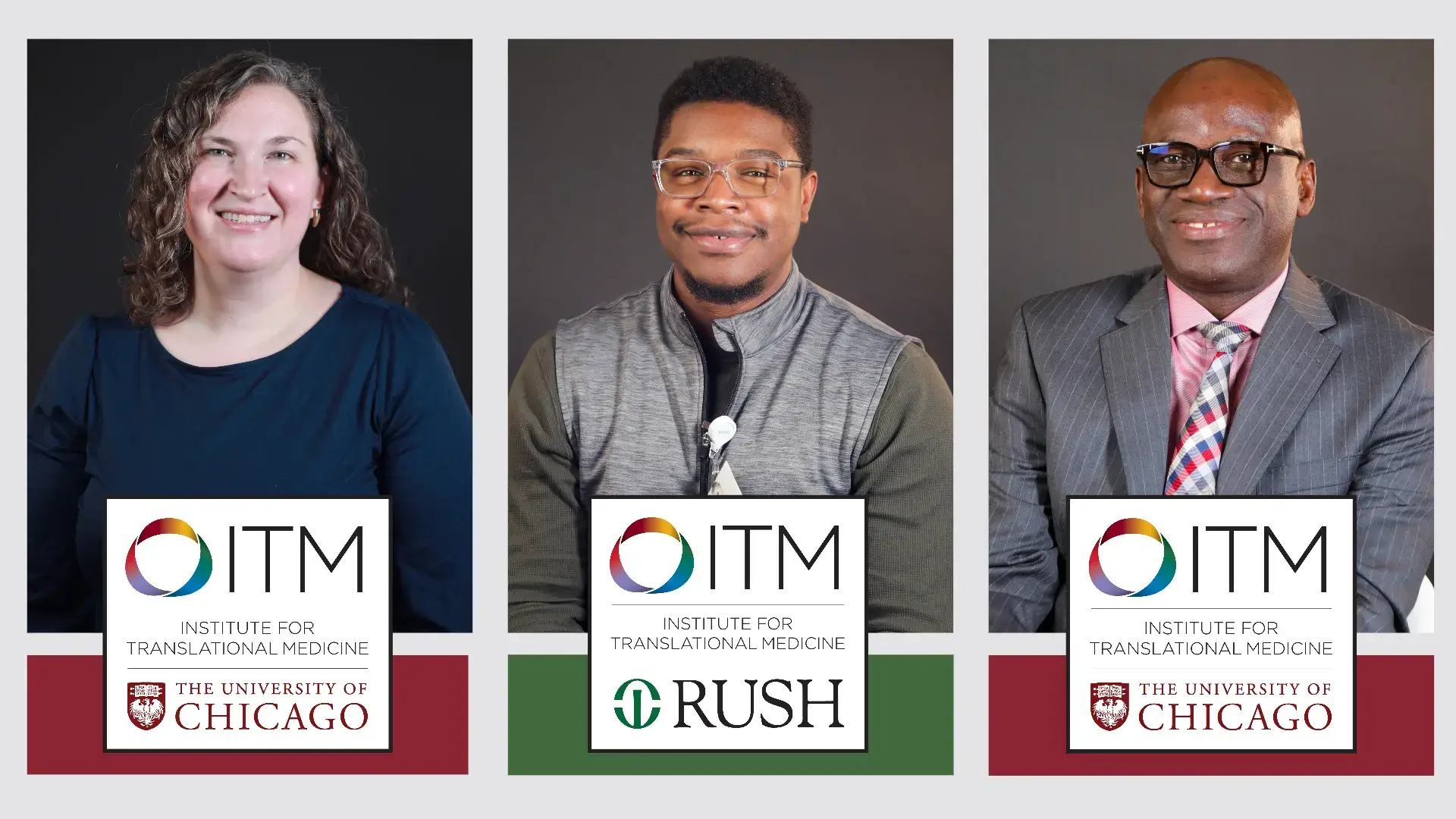
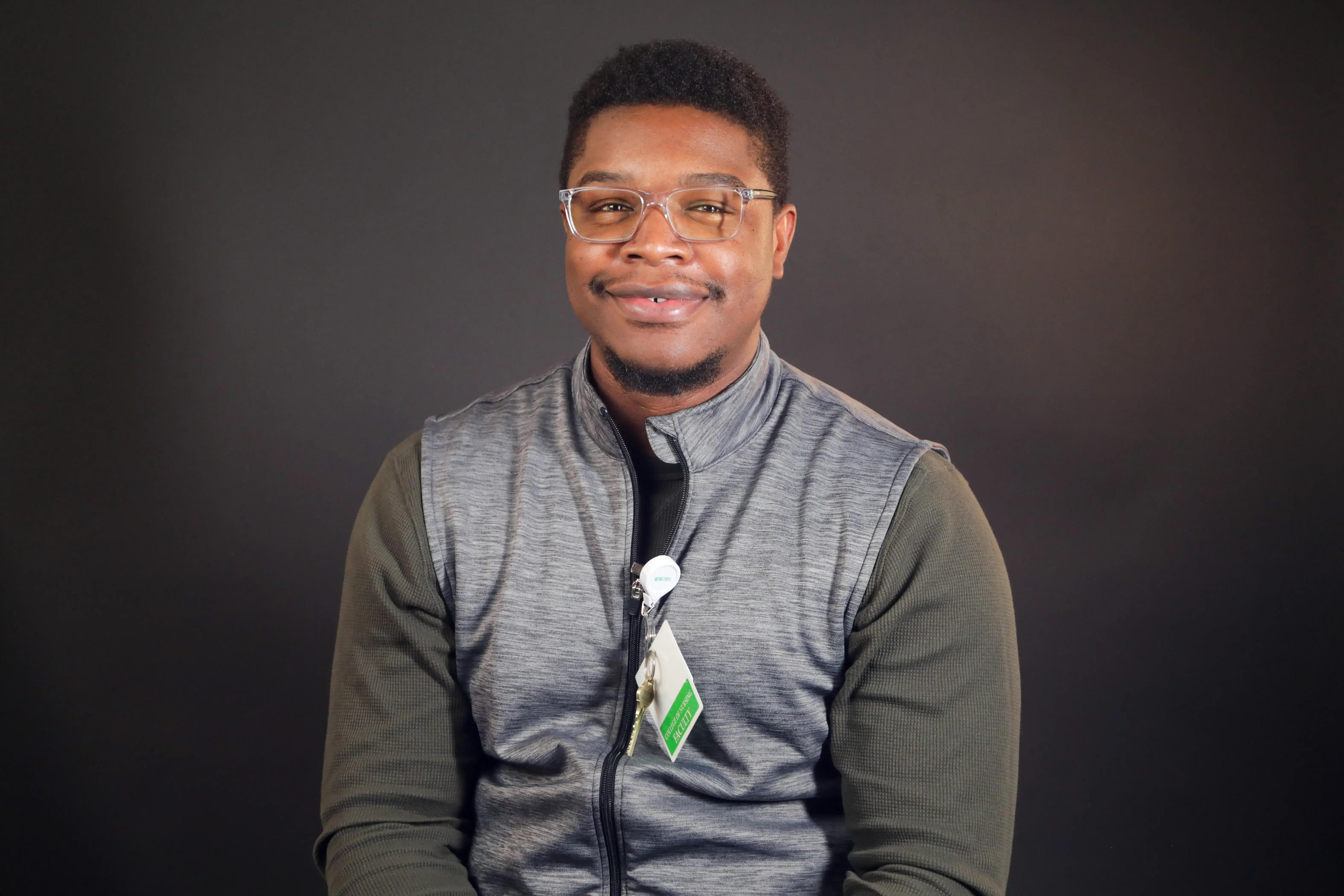
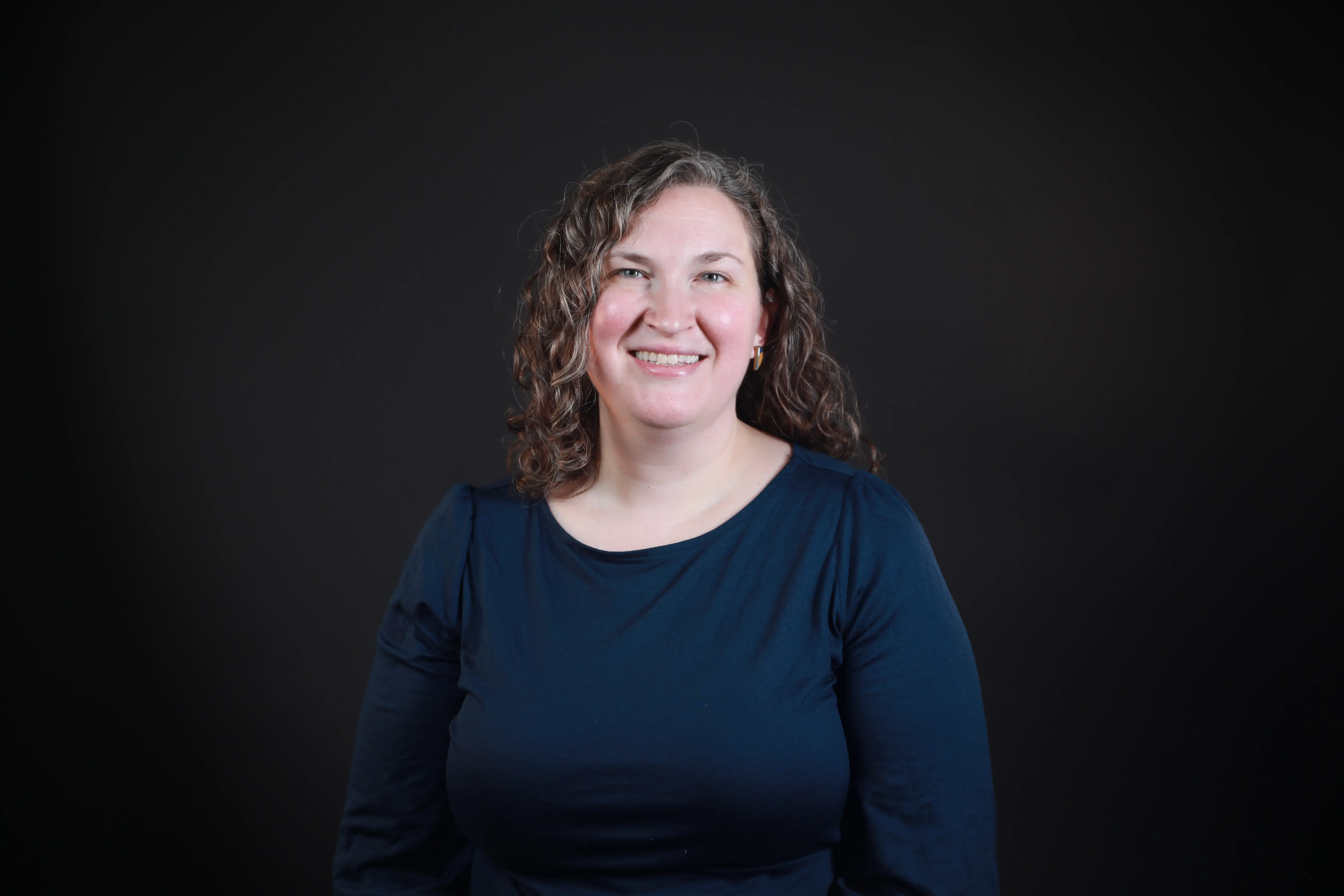
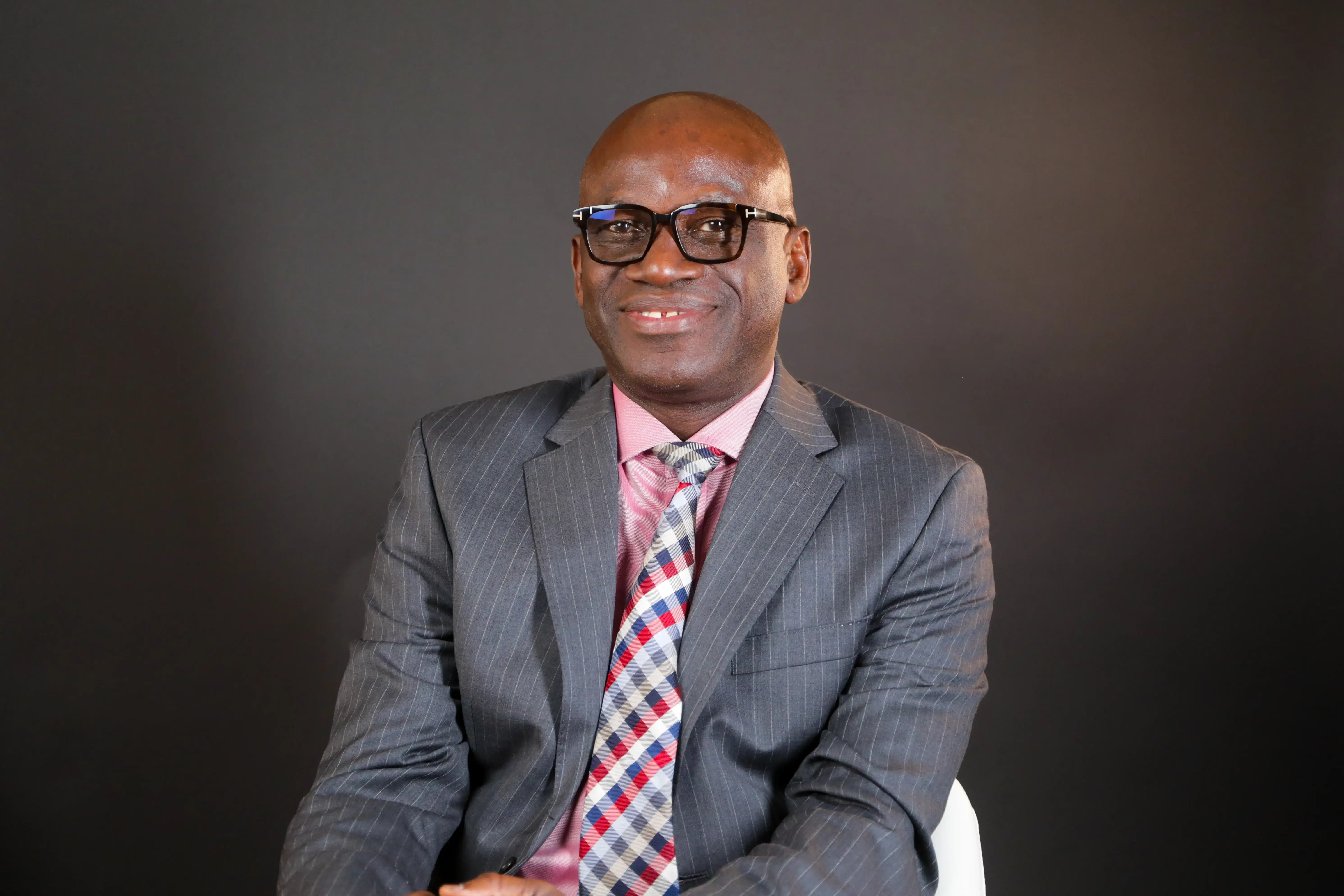


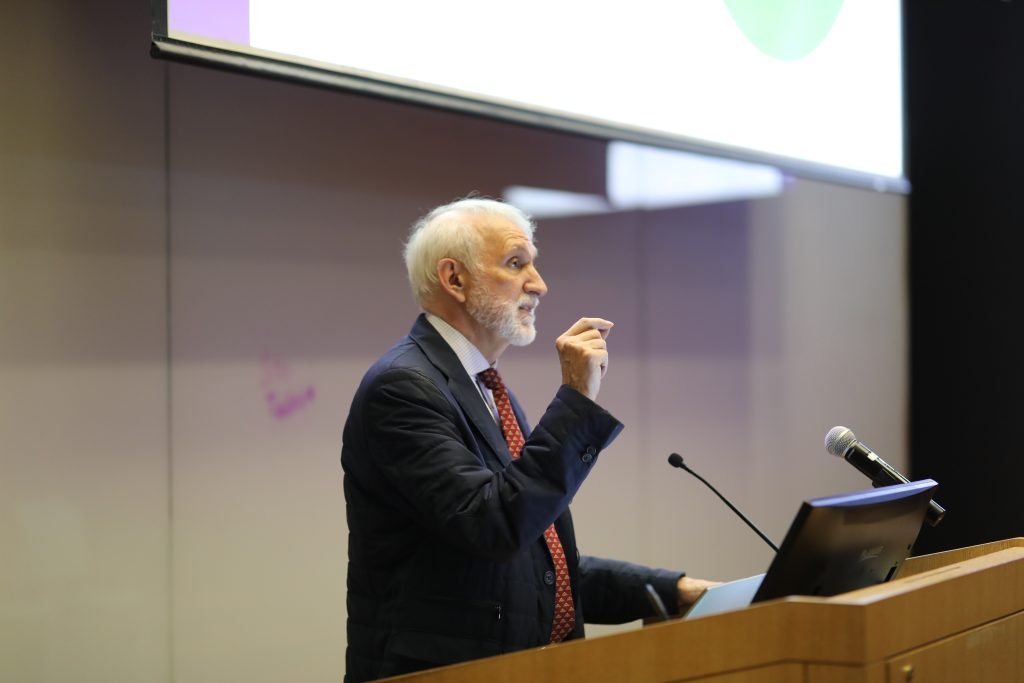
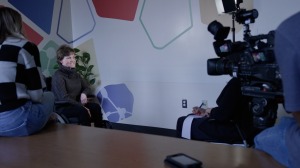 Researcher Peggy Mason, PhD, professor of neurobiology at UChicago, first met Kim Stenger in 2014. They embarked on their journey of trying to understand and learn more about Stenger’s rare condition, and over the years became close friends.
Stenger, who lives in the suburbs of Cleveland, Ohio, visits Mason in Chicago to continue experiments exploring her lack of sensation. This recent visit also marked Stenger’s first ever TV appearance.
Researcher Peggy Mason, PhD, professor of neurobiology at UChicago, first met Kim Stenger in 2014. They embarked on their journey of trying to understand and learn more about Stenger’s rare condition, and over the years became close friends.
Stenger, who lives in the suburbs of Cleveland, Ohio, visits Mason in Chicago to continue experiments exploring her lack of sensation. This recent visit also marked Stenger’s first ever TV appearance.
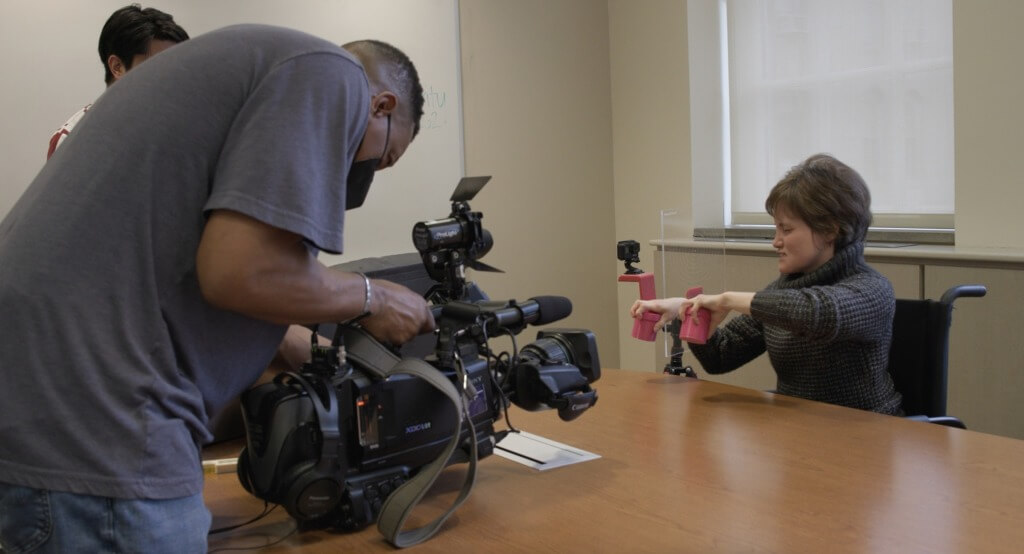 The ITM has been following Mason and Stenger’s journey over the past several years and is in the process of making a documentary. Several ITM researchers and physicians, along with the ITM’s Clinical Research Center (CRC) and staff, have contributed to this project.
The ITM has been following Mason and Stenger’s journey over the past several years and is in the process of making a documentary. Several ITM researchers and physicians, along with the ITM’s Clinical Research Center (CRC) and staff, have contributed to this project. 